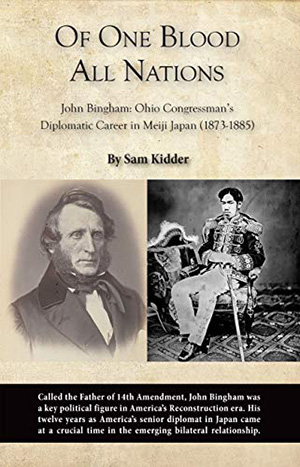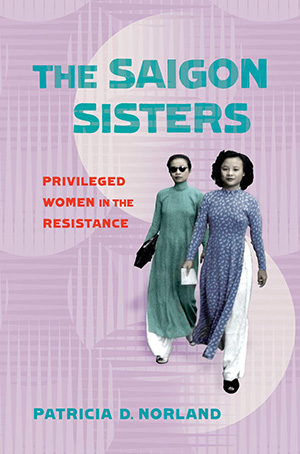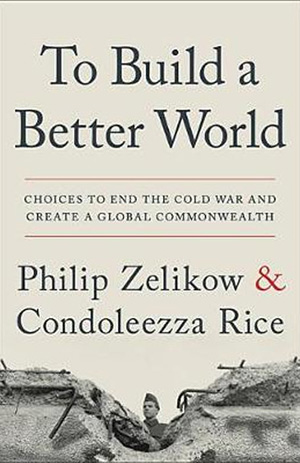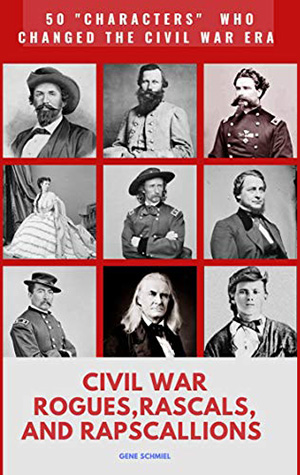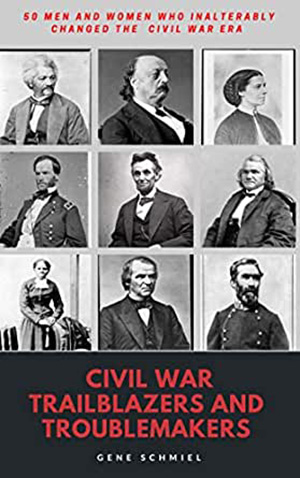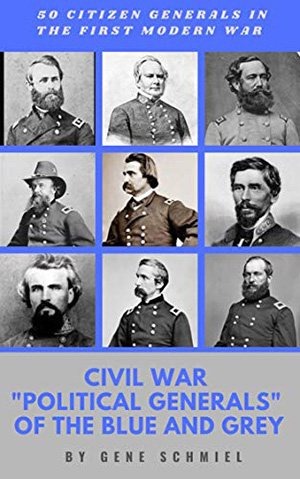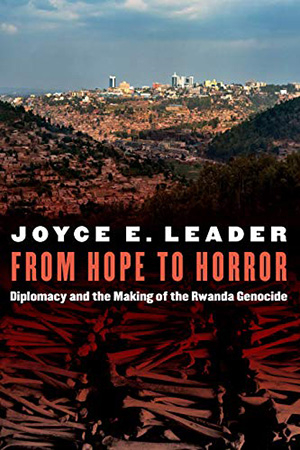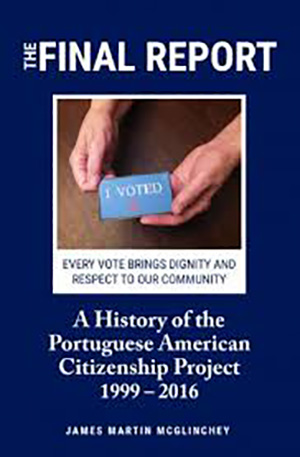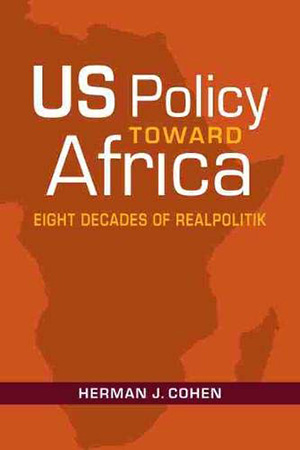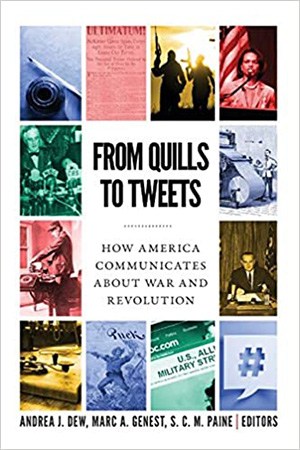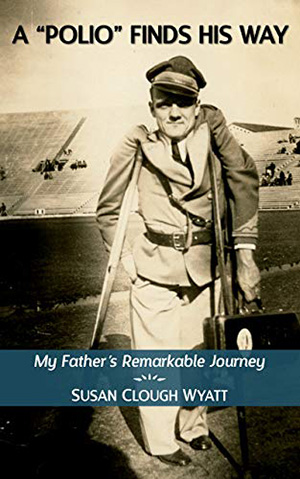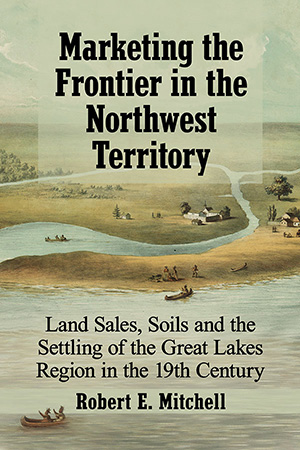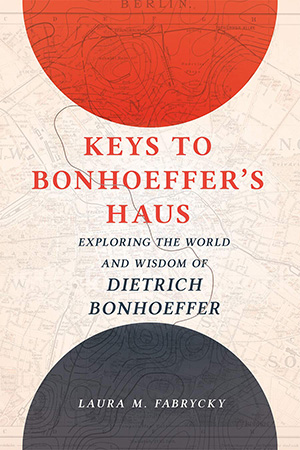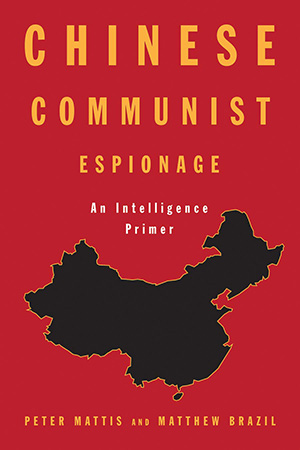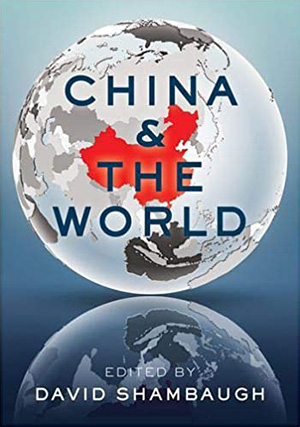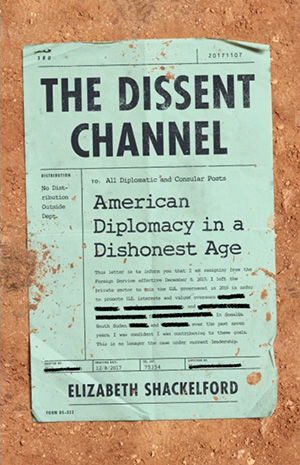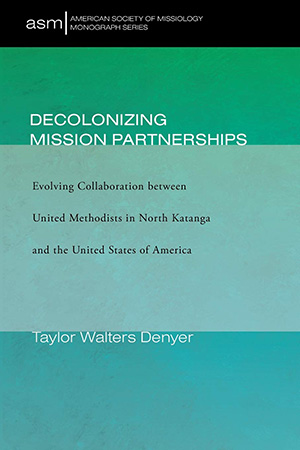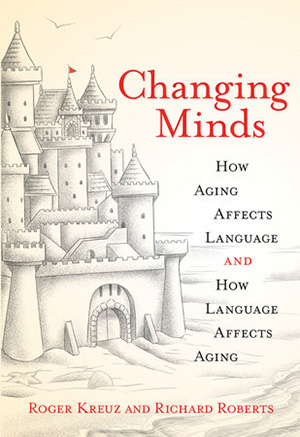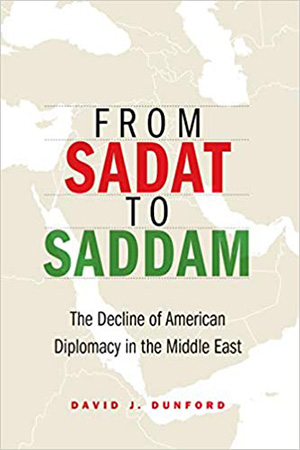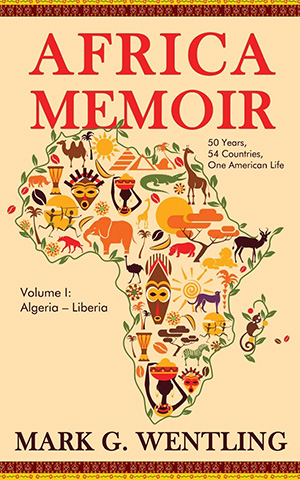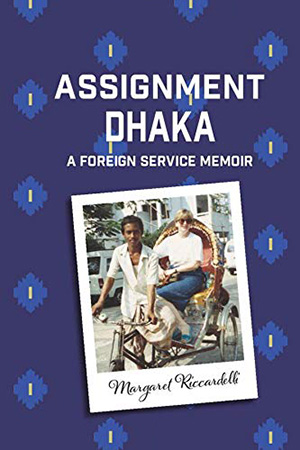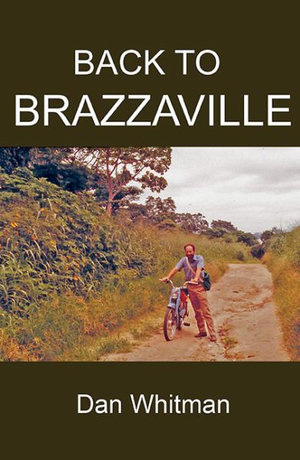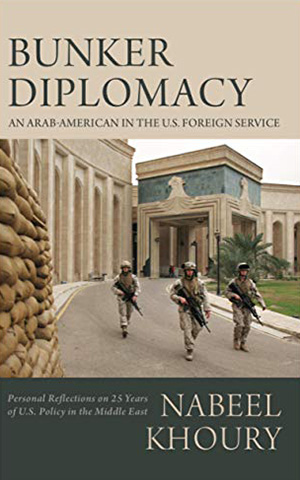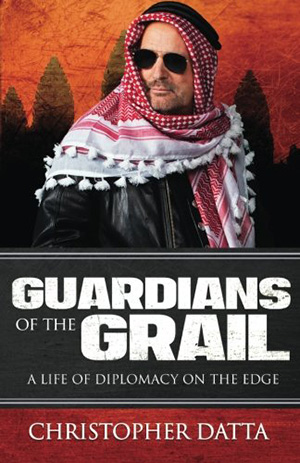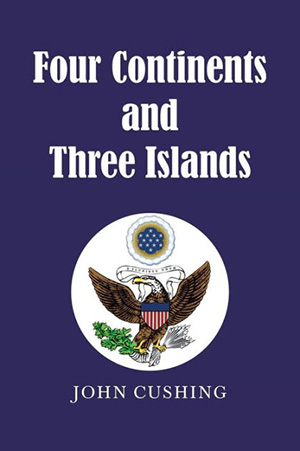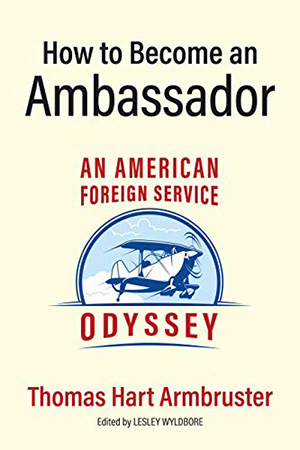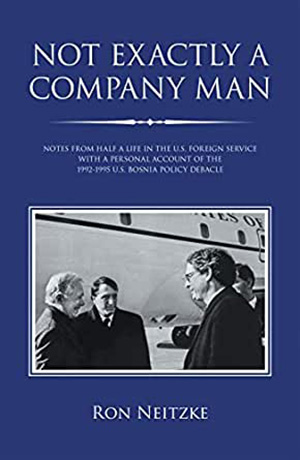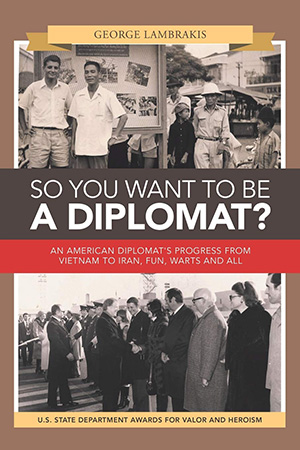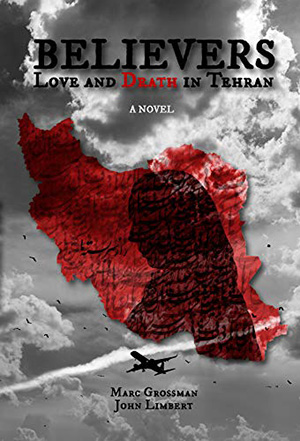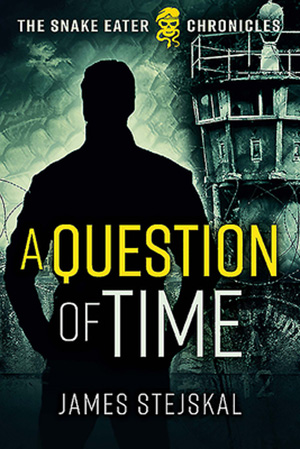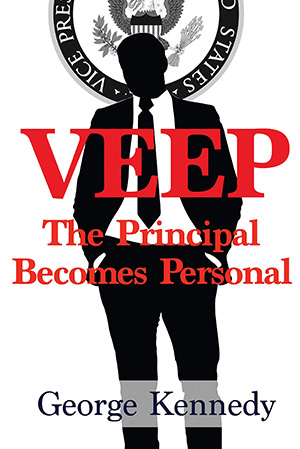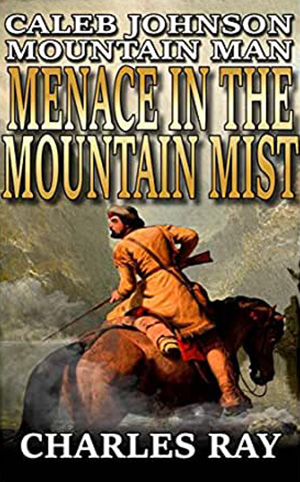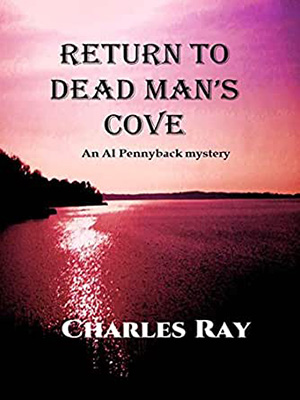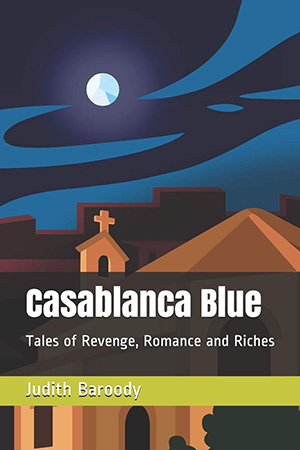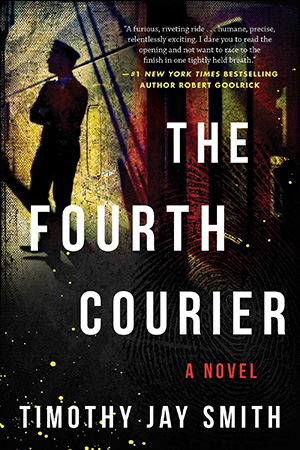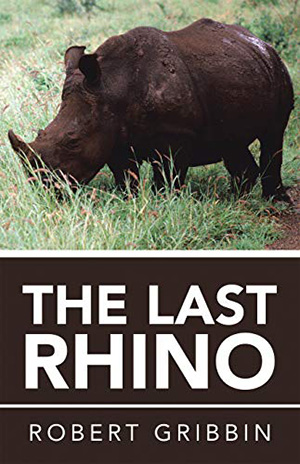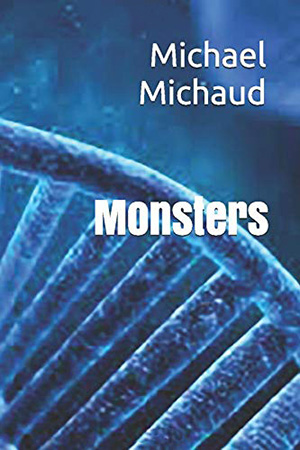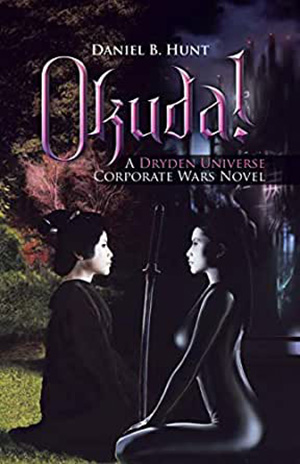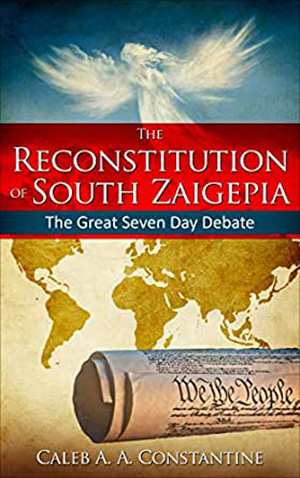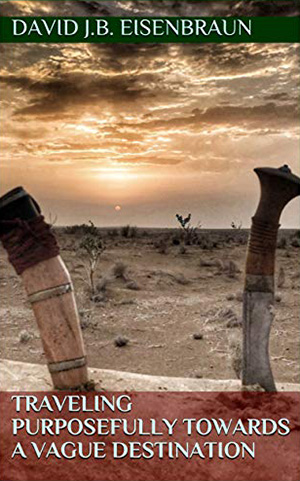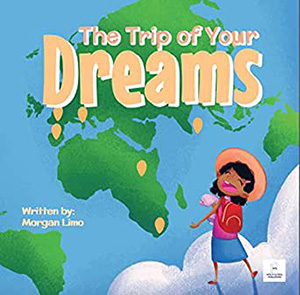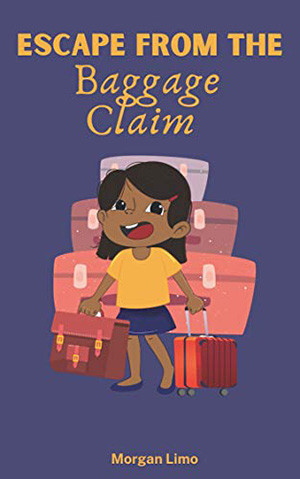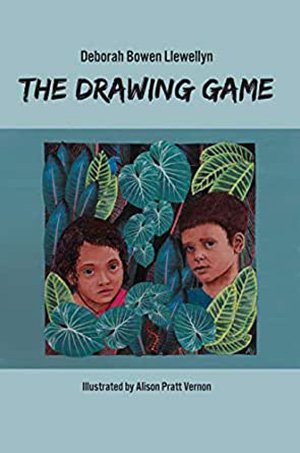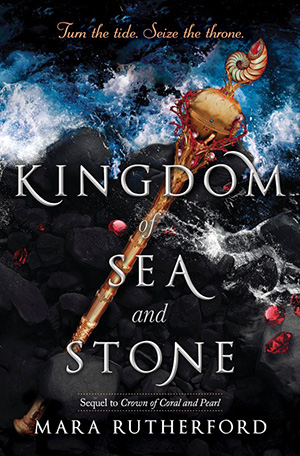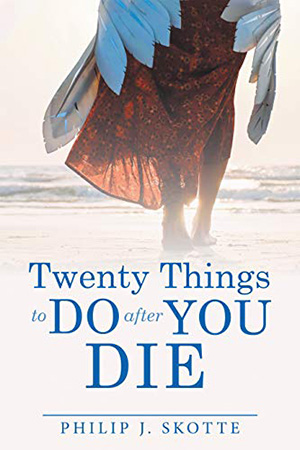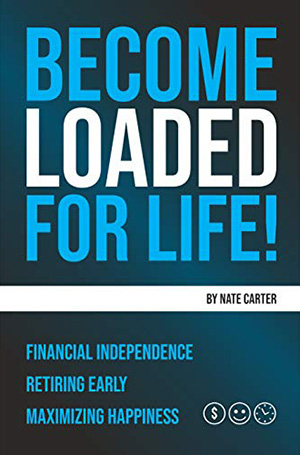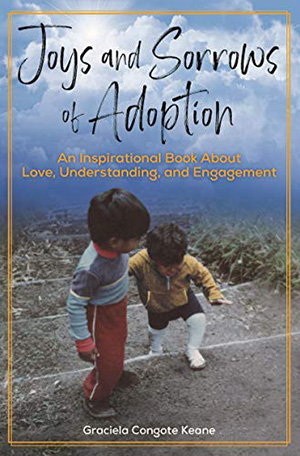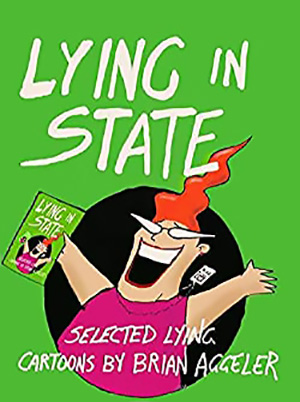In Their Own Write
We are pleased to present this year’s collection of books by members of the Foreign Service community.

The Foreign Service Journal is pleased to present our 19th annual Foreign Service authors roundup in plenty of time for holiday orders.
Our primary purposes in compiling “In Their Own Write” for publication are to celebrate the wealth of literary talent within the Foreign Service community, and to give our readers the opportunity to support colleagues by sampling their wares. Each entry contains full publication details along with a short commentary.
This year our annotated list of books written, edited or translated by Foreign Service personnel and their family members has almost doubled from last year—from 43 to 78—a development that may be an unintended consequence of the COVID-19 pandemic and associated lockdowns.
The list of books published in 2019 and 2020 is not a comprehensive or definitive record of works by FS authors; as always, we rely on the authors themselves to bring their books to our attention.
This year we’re featuring 14 works of history and biography, 11 books on policy and issues, 13 memoirs, six books for children and young adults—and no less than 29 works of fiction. (Fiction as a refuge from 2020’s stranger-than reality?) Our “potpourri” section sports five books, on the afterlife, adoption, financial independence and project management, as well as a collection of cartoons.
As usual, we also include in this month’s focus a selection of recent books “of related interest” to diplomats and their families that were not written by FS authors.
This year’s roundup was assembled with the vital assistance of Publications Coordinator Dmitry Filipoff, Contributing Editor Steven Alan Honley, Associate Editor Cameron Woodworth and Managing Editor Kathryn Owens.
—Susan Brady Maitra, Senior Editor
BIOGRAPHY AND HISTORY
Of One Blood All Nations: John Bingham: Ohio Congressman’s Diplomatic Career in Meiji Japan (1873-1885)
Sam Kidder, Piscataqua Press, 2020, $16.99/paperback, e-book available, 256 pages.
In the immediate aftermath of the American Civil War, John Bingham established himself as one of the more consequential figures shaping U.S. history. He was a primary author of the 14th Amendment to the Constitution, had been an adviser to President Abraham Lincoln, was the lone civilian prosecutor on the military tribunal that tried Lincoln’s killers and delivered the closing prosecution arguments to the Senate at the impeachment trial of President Andrew Johnson.
Several years after the war, President Ulysses Grant appointed Bingham minister to Japan, and he played a historic role in establishing ties between the two nations. Japan had only recently emerged from isolation after Commodore Matthew Perry had helped open the nation. The Meiji Restoration, which had ended several years earlier, helped set Japan on the path toward rapid modernization, and the nation was in the midst of a great transformation when Bingham arrived.
He would become, and remains, the longest-serving American ambassador to Japan, on the job from 1873 to 1885.
Sam Kidder is a retired U.S. Foreign Commercial Service officer whose overseas postings were concentrated in Japan, South Korea and India. After serving as minister counselor for commercial affairs in Tokyo from 1997 to 2001 and from 2003 to 2006, he was named executive director at the American Chamber of Commerce in Japan, a position he held from 2006 to 2014. He is currently managing director at FES, Inc. (Fukuda Editorial Services).
Operation Eagle Claw 1980: The Disastrous Bid to End the Iran Hostage Crisis
Justin W. Williamson, Osprey Publishing, 2020, $22/paperback, e-book available, 80 pages.
Iran was newly under the administration of a radical revolutionary movement that was thoroughly hostile to the United States. As Ayatollah Khomeini delivered heated anti-American rhetoric, Iranian radicals stormed the U.S. embassy and took 52 Americans hostage on Nov. 4, 1979. President Jimmy Carter preferred a diplomatic resolution to the crisis, but the Iranian revolutionaries were proving to be extraordinarily difficult to negotiate with. As weeks stretched into months, President Carter authorized a daring rescue operation into Iran, hoping it would not provoke open conflict.
In this illuminating account of Operation Eagle Claw, Justin Williamson delves into the details of a controversial rescue operation, including the reservations of some senior military leaders, the assembled operational plans and how Carter’s increasing desperation to retrieve the hostages ultimately forced his hand in April 1980.
Operation Eagle Claw ended in disaster, with two of the transport aircraft colliding after a mission abort order was issued. But while the operation is remembered as a failure, it prompted significant military reform, and the author argues that “the extraordinary abilities of today’s U.S. Special Operations Forces arose from the ashes.”
Justin W. Williamson is a Foreign Service officer who has served in Iraq, Mexico, Spain and the Democratic Republic of the Congo. He has earned degrees from Texas Tech University and the University of Texas at El Paso, and is a recent graduate of the U.S. Army Command and Staff College.
The Saigon Sisters: Privileged Women in the Resistance
Patricia D. Norland, Northern Illinois University Press, 2020, $39.95/ hardcover, e-book available, 280 pages.
The Saigon Sisters is the story of nine women who led double lives in wartime Vietnam. In one life they were mothers and teachers, humble and apparently ordinary. In their other lives, however, the women were underground revolutionaries, working with resistance movements to expel the French colonial government and American forces.
In navigating their double lives, the Saigon sisters endured much as conflict swirled about them. They suffered long family separations, including from spouses who joined to fight but were never heard from again, or who were gone for so long they failed to recognize their wives upon reunion. Through decades of such hardship the Saigon sisters were driven by steadfast patriotism and unyielding devotion to their cause: the eventual liberation of Vietnam.
The author gathered these stories in face-to-face interviews with the nine women, their families and other sources. Some struggled to share their perspective, whether from humility or the difficulty of recounting painful experiences. In recording the histories and putting them to print, Patricia Norland succeeded in capturing an important slice of history and the very personal story of exemplary women. The book is a volume in the NIU Southeast Asian series.
Patricia D. Norland retired from the Foreign Service in 2016 after a 21-year career as a public diplomacy officer with multiple tours in Southeast Asia. Born into a Foreign Service family, she worked with the Indochina Project, a nonprofit promoting exchanges with Southeast Asia, before joining the Service herself. During that time, she translated a book from French, Beyond the Horizon: Five Years with the Khmer Rouge (St. Martin’s Press, 1991).
To Build a Better World: Choices to End the Cold War and Create a Global Commonwealth
Philip Zelikow and Condoleezza Rice, Twelve, 2020, $17.99/paperback, e-book available, 528 pages.
Former Secretary of State Condoleezza Rice and career diplomat Philip Zelikow, both scholars, have teamed up to assess the forces that led to the end of the Cold War, as well as what came next. The pair interviewed leading sources, combed texts in several languages and drew on their own firsthand experience to shed light on the choices that shaped our contemporary world.
To Build a Better World explores how a world changed, states fell apart and new systems of governance were developed—all without ending up in war. As FSO Joseph L. Novak writes in his review of the book (FSJ, June), “The larger point made by Zelikow and Rice is a vital one: the art of diplomacy is a serious business, and success (as shown in 1989-1991) requires coordinated policy planning, steadiness of purpose and tactical skill.”
A former Foreign Service officer who was detailed in 1989 to the National Security Council, where he was involved in the diplomacy surrounding the end of the Cold War and German reunification, Philip Zelikow is the White Burkett Miller Professor of History and J. William Newman Professor of Governance at the Miller Center of Public Affairs, both at the University of Virginia.
Condoleezza Rice served as George W. Bush’s first national security adviser and was the first Black woman to serve as Secretary of State. She is now a professor at Stanford University and the Thomas and Barbara Stephenson Senior Fellow on Public Policy at the Hoover Institution.
Civil War Rogues, Rascals, and Rapscallions: 50 “Characters” Who Changed the Civil War Era
Gene Schmiel, independently published, 2020, $14.99/paperback, e-book available, 251 pages.
Every conflict involves colorful characters who are memorable for good and bad reasons. The Civil War was certainly no exception. Jesse James, George Custer, Napoleon III, Ambrose Bierce and Phil Sheridan are among the 50 “characters” you will meet in Civil War Rogues, Rascals, and Rapscallions. The book is one of three published by historian and Civil War expert Gene Schmiel this year, each featuring portraits of 50 individuals involved in the Civil War.
In concise essays, Schmiel explains why and how each of the 50 individuals was a rogue (one who acts outside normal parameters), a rascal (a mean, unprincipled or dishonest person) or rapscallion (an extreme version of a rascal)—or all three. Incorporating contemporary photographs, political cartoons and modern maps into each listing helps bring these subjects to life for both the general reader and the Civil War buff.
Gene Schmiel retired from the Foreign Service in 2002, after a 24-year career that included tours as chargé d’affaires in Djibouti, Bissau and Reykjavík, among many other assignments. Before joining the Service, he was an assistant professor of history at St. Francis University in Pennsylvania, and has taught at Marymount, Shenandoah and Penn State universities.
He has specialized in the Civil War ever since the 2014 publication by Ohio University Press of his award-winning book, Citizen-General: Jacob Dolson Cox and the Civil War Era.
Civil War Trailblazers and Troublemakers: 50 Men and Women Who Inalterably Changed the Civil War Era
Gene Schmiel, independently published, 2020, $12.99/paperback, e-book available, 233 pages.
Abraham Lincoln and Harriet Tubman. William Tecumseh Sherman and Frederick Douglass. Mathew Brady and John Wilkes Booth. These are just a few of the figures profiled in this fascinating history book. In two- and three-page essays, the author explains why and how each individual was a trailblazer, troublemaker or (as with Mark Twain) both.
Most readers will already be familiar with at least some of these individuals. But you will also learn about more obscure but still significant figures, as well as the anonymous trailblazers of the era: the nurses, the telegraph operators, the military bands, the drummer boys and many others.
Civil War “Political Generals” of the Blue and Grey: 50 Citizen Generals in the First Modern War
Gene Schmiel, independently published, 2020, $12.99/paperback, e-book available, 236 pages.
Of the more than three million men who wore a uniform at some point during the Civil War, several hundred were general officers who commanded thousands of troops. The great generals on both sides—Ulysses Grant, Robert E. Lee, William Tecumseh Sherman, Philip Sheridan, James Longstreet and Joseph Johnston— are well known. They were all West Point graduates and professional soldiers.
But there were also many near-great generals who were not professional soldiers: the so-called “political generals.” Yet few of them, other than Joshua Chamberlain, Patrick Cleburne, Nathan Bedford Forrest and John Logan, are remembered today.
This book will introduce (or reintroduce) the reader to 50 of these military leaders, none of whom graduated from West Point. The author has chosen 25 from each side and assesses their achievements, successes and failures.
From Hope to Horror: Diplomacy and the Making of the Rwanda Genocide
Joyce E. Leader, Potomac Books, 2020, $50/hardcover, e-book available, 440 pages.
As deputy chief of mission in Rwanda from 1991 to 1994, Joyce E. Leader had a close view of the period leading up to the Rwandan genocide of 1994, in which an estimated 500,000 to one million Rwandans were killed. It was a time of human rights abuses, escalating violence and political quarrels between rival factions.
From Hope to Horror, a volume in the Association for Diplomatic Studies and Training’s “Diplomats and Diplomacy” series, is her insider’s account of Rwanda’s efforts to move toward democracy and peace in the early 1990s. She analyzes the difficulties of engaging in diplomacy in countries enmired in internal armed conflict. Hoping to foster a peaceful transition, the United States sponsored negotiations to try to reach an accord. U.S. officials developed what she calls “a revolutionary blueprint” for political and military power-sharing, but it was rejected by the factions and a downward spiral into mass atrocities followed.
Drawing on her experience, Leader discusses ways in which diplomacy can more effectively prevent violence by identifying the unintended consequences of policies and emphasizing conflict prevention over crisis response.
Joyce E. Leader is a retired U.S. Foreign Service officer who served as the deputy chief of mission in Rwanda and as a U.S. observer to the Rwandan peace talks in Arusha, Tanzania, and as U.S. ambassador to the Republic of Guinea (1999-2000).
The Final Report: A History of the Portuguese American Citizenship Project 1999–2016
James Martin McGlinchey, Opus Self-Publishing, 2020, $35/paperback, e-book available, 378 pages.
Portuguese immigrants have been coming to the United States for more than two centuries, but the history of the Portuguese American community, and particularly its civic engagement, has not been closely studied. The Portuguese American Citizenship Project, begun in 1999, aimed to remedy that. Over 16 years, the project engaged with various community organizations across the United States and filed more than 50 reports on its progress; this book, as its name implies, is the final one.
The Citizenship Project measured the political strength of Portuguese American communities, carried out a campaign to encourage voter registration and facilitated public meetings between candidates for elected office and Portuguese American communities. In a series of case studies, it then assessed whether these efforts affected political outcomes.
James Martin McGlinchey is a retired Foreign Service officer who served in Poland, Malaysia, Indonesia, Australia and Portugal. His last overseas posting was as counselor for economic affairs in Lisbon. He was coordinator of the Portuguese American Citizenship Project from 1999 to 2009 and served on the project’s board of directors until it closed in 2016. His maternal grandparents immigrated to the United States from the Azores at the turn of the 20th century. Mr. McGlinchey and his wife, Andrea, also a retired FSO, reside in McLean, Virginia.
US Policy Toward Africa: Eight Decades of Realpolitik
Herman J. Cohen, Lynne Rienner Publishers, 2019, $35/paperback, 280 pages.
US Policy Toward Africa is a critical history of each U.S. president’s policies toward Africa since 1941. Its author, Ambassador Herman J. Cohen (universally known as “Hank”), needs no introduction for most Foreign Service Journal readers. As someone who spent virtually his entire 38-year Foreign Service career either serving in Africa or helping to direct our relations with the continent, Amb. Cohen is an Africa hand par excellence.
Neither an academic study nor a memoir, the book reflects both the author’s command of the documentary record and his decades of on-the-ground experience. Starting in 1941 as Franklin Delano Roosevelt begins his third term, each chapter assesses a U.S. president’s record in dealing with Africa. Cohen places each administration’s record in the larger context of the continent’s struggle for independence from European powers; American efforts to cultivate relationships with the new nations against the backdrop of the Cold War; and the post-9/11 era.
Reviewing the book in the September FSJ, Steven Alan Honley called it “a valuable addition to the literature, with much to offer both seasoned Africa hands and general readers.” The book is a volume in the Association for Diplomatic Studies and Training’s Diplomats and Diplomacy series.
Herman J. Cohen joined the Foreign Service in 1955 and retired with the rank of Career Ambassador in 1993, after serving as assistant secretary of State for African affairs for four years. He received AFSA’s Award for Lifetime Contributions to American Diplomacy in 2019. He is president and chief executive officer of Cohen and Woods International.
From Quills to Tweets: How America Communicates about War and Revolution
Andrea J. Dew, Marc A. Genest and S.C.M. Paine, eds., Georgetown University Press, 2019, $36.95/paperback, e-book available, 320 pages.
While today’s presidential tweets are light-years away from the scratch of pens on parchment during the era of the American Revolution, the importance of political communication is eternal. From Quills to Tweets: How America Communicates about War and Revolution explores the roles that political narratives, media coverage and evolving technologies have played in precipitating, shaping and concluding (or prolonging) wars and revolutions over the course of U.S. history.
Each chapter takes a different conflict and offers a unique assessment of a particular aspect of the communications battle. Collectively, the book provides an overview of the history of American strategic communications that will interest scholars, students and communications strategists alike.
Judith Baroody, who retired from the Senior Foreign Service in 2017 with the rank of Minister Counselor, contributed the chapter “American Wartime Communication Strategies during the Gulf War.” State Department librarian Martin J. Manning wrote the chapter “The Communications Revolution during the U.S. Civil War.”
All three of the book’s editors are on staff at the U.S. Naval War College. Andrea J. Dew is the Maritime Irregular Warfare Forces Chair and Co-Director of the Center on Irregular Warfare and Armed Groups; Marc A. Genest is the Forrest Sherman Professor of Public Diplomacy in the Strategy and Policy Department; and S.C.M. Paine is the William S. Sims University Professor of History and Grand Strategy.
A “Polio” Finds His Way: My Father’s Remarkable Journey
Susan Clough Wyatt, independently published, 2020, $18.95/paperback, e-book available, 350 pages.
As we struggle with the COVID-19 pandemic, it is worth recalling that this is not the first time in history that disease has challenged life as we know it. In addition to the 1918 influenza outbreak, polio ravaged the globe in the first half of the 20th century. In this book, Susan Clough Wyatt recounts her father’s experience with this brutal malady.
Forrest Clough contracted polio at the age of four months in 1909 in Fort Worth, Texas, and the disease left him a paraplegic. In the decades before the passage of the first disability rights legislation in 1966, the United States “was immune to the needs of the disabled,” Wyatt writes, calling her father’s survival against the disease a “miracle.”
Clough was supported by a determined mother, a devoted wife and many others along the way. He became the lead trumpet player in the 1930s with the Southern Methodist University band and went on to enjoy a 30-year career in radio in Texas.
Wyatt draws from her father’s college autobiography and seven scrapbooks to interweave his story with the history of polio, FDR’s attempts to develop vaccines, her own bout with polio during the 1952 epidemic and efforts to eradicate the disease today. While Wyatt didn’t suffer from paralysis, she does share her experiences with post-polio syndrome.
Susan Clough Wyatt was a Foreign Service spouse for 16 years and worked with the State Department for seven of those years. She is also the author of two memoirs, Arabian Nights and Daze (2010) and Thirty Acres More or Less (2003). She lives in Eugene, Oregon.
Marketing the Frontier in the Northwest Territory: Land Sales, Soils and the Settling of the Great Lakes Region in the 19th Century
Robert E. Mitchell, McFarland, 2020, $55/hardcover, e-book available, 252 pages.
Robert Mitchell combines narrative history with in-depth, data-rich social and economic research to examine the fate of frontier farms in the Old Northwest Territory of the United States. In the antebellum period these farms and their related legislatively created markets resulted in significant investment losses for both individual farmers and the country’s economy.
Part narrative and part study, Mitchell describes the ambitions and decision-making of farmers intent on making a living in frontier lands. By examining physical geography alongside the human geography of the westward expansion of the United States in the 18th century, Mitchell overlays individual investment decisions with the growth of frontier communities, and how farmers fared in imperfect markets.
Much of the analysis and storytelling is performed with an eye toward understanding waste and missed opportunity. Calling on numerous disciplines from soil science to market economics, Mitchell tells the story of an evolving agricultural and human relationship in the Old Northwest Territory.
Robert E. Mitchell, who retired from the Foreign Service in 1995 after postings in the Near East and Africa, is the author of a half-dozen nonfiction books and many articles. Prior to joining the Foreign Service, he was engaged in social science research and teaching for two decades at Columbia University, University of California–Berkeley, the Chinese University of Hong Kong and Florida State University. He lives in Brookline, Massachusetts.
Keys to Bonhoeffer’s Haus: Exploring the World and Wisdom of Dietrich Bonhoeffer
Laura M. Fabrycky, Fortress Press, 2020, $25.99/hardcover, e-book available, 304 pages.
In the summer of 2016, Laura Fabrycky and her family moved to Berlin, Germany, for her husband’s three-year assignment at the U.S. embassy. On arriving she felt adrift, strangely alienated from her home in the United States and not comfortable in her new, unfamiliar surroundings. Yet the figure of theologian and pastor Dietrich Bonhoeffer (1916-1945) would soon offer her mooring and define her time there.
Seeking out more information about this man who died at the hands of the Nazis, Laura discovered the local Bonhoeffer-Haus, his family home that had been memorialized for visitors in the late 1980s. There, she would become a docent and learn over time and through experience to tell his story.
Now holding a physical key to his house, alongside her U.S. government–issued house and official post office keys, she found other keys to Bonhoeffer that would reveal lessons for our time and place, including the importance of asking questions of herself and others—a known practice of Bonhoeffer’s. In clean and direct prose, Laura poignantly reflects on these and other civic responsibilities that we all share.
Laura M. Fabrycky is a writer, a Foreign Service spouse, mother of three and a contributor to The Foreign Service Journal. She last wrote for the Journal in June on the Bonhoeffer-Haus, “Engaging Our Host Country’s History.”
POLICY AND ISSUES
Chinese Communist Espionage: An Intelligence Primer
Peter Mattis and Matthew Brazil, Naval Institute Press, 2019, $45/hardcover, e-book available, 376 pages.
The first book of its kind to employ hundreds of Chinese sources to explain the history and current state of Chinese Communist intelligence operations, Chinese Communist Espionage: An Intelligence Primer profiles the leaders, top spies and important operations, and links to an extensive online glossary of Chinese-language intelligence and security terms.
The Wall Street Journal calls it “the most comprehensive attempt yet to outline the range of China’s spying and the complicated web of agencies that carry it out. … The ignominious list of Americans, both of Chinese descent and otherwise, who have sold national or corporate secrets to China, or attempted to do so, is enough to raise questions about how much of China’s military and economic rise could have been achieved without espionage.”
Matthew Brazil was a Foreign Commercial Service officer in Beijing from 1991 to 1995, and also worked in the Commerce Department’s Office of Export Enforcement and for U.S. Army Intelligence before joining the private sector. He is a nonresident fellow at the Jamestown Foundation and an account manager at an American technology company in California.
Peter Mattis is a research fellow in China studies at the Victims of Communism Memorial Foundation and a contributing editor at War on the Rocks. He was previously a fellow at the Jamestown Foundation and edited its biweekly China Brief from 2011 to 2013. He also worked as a counterintelligence analyst at the Central Intelligence Agency.
China and the World
David Shambaugh, ed., Oxford University Press, 2020, $27.95/ paperback, e-book available, 416 pages.
In China and the World, David Shambaugh, one of the world’s leading China specialists, has assembled 15 international scholars and diplomatic practitioners—including, most notably, retired Ambassador Chas W. Freeman Jr., who discusses “China’s National Experiences and the Evolution of PRC Grand Strategy”—to create a comprehensive assessment of Beijing’s foreign relations and role in international affairs.
The book explores the sources of China’s grand strategy, describes how the past shapes the present and assesses the impact of domestic factors that shape China’s external behavior. This uniquely focused and well-organized volume offers many insights into Beijing’s calculations and behavior, as well as identifying a variety of challenges it will face in the future.
Chas W. Freeman Jr., a retired Foreign Service officer and former ambassador to Saudi Arabia, is a visiting scholar at Brown University’s Watson Institute for International and Public Affairs. The principal American interpreter during President Richard Nixon’s visit to China in 1972, he served as director for Chinese affairs at the State Department (1979-1981) and deputy chief of mission and chargé in Beijing (1981-1984).
David Shambaugh is the Gaston Sigur Professor of Asian Studies, Political Science and International Affairs, and the founding director of the China Policy Program in the Elliott School of International Affairs at The George Washington University. An active public intellectual and frequent commentator in the international media, he has published more than 30 books.
The Dissent Channel: American Diplomacy in a Dishonest Age
Elizabeth Shackelford, PublicAffairs, 2020, $17.99/paperback, e-book available, 304 pages.
In late 2017, Foreign Service Officer Elizabeth Shackelford delivered her resignation letter to Secretary of State Rex Tillerson. But, as retired FSO Edmund McWilliams states in his review of this book (FSJ, October), “The Dissent Channel is much more than a cri de coeur targeting the Trump administration. In the book, Shackelford reveals the full tragedy of South Sudan.”
The author documents the tragedy of South Sudan as she witnessed it during her 2013 posting in Juba and as she struggled to set it right with, among other things, a dissent channel message in 2015. Well into 2017, nothing had changed.
Born in hope in 2011, South Sudan was plunged into civil war two years later. Determined not to preside over the dissolution of the new nation, whose creation was viewed as a great achievement for Washington, the Obama administration refused to pressure the authoritarian Kiir government despite its corruption and the atrocities it committed against its own people and international personnel.
Elizabeth Shackelford, a Foreign Service officer from 2010 to 2017, served in Poland, South Sudan, Somalia and Washington, D.C. For her work in South Sudan during the outbreak of civil war, she received the Barbara M. Watson Award for Consular Excellence, the State Department’s highest honor for consular work. Now an independent consultant, she focuses on human rights advocacy, conflict mitigation, political affairs and democratic processes. Born and raised in Mississippi, she now lives in Rochester, Vermont.
Decolonizing Mission Partnerships: Evolving Collaboration between United Methodists in North Katanga and the United States of America
Taylor Walters Denyer, Wipf and Stock, 2020, $42/paperback, e-book available, 364 pages.
The legacies of colonialism, racism and trauma affect the ability of religious missions to work together abroad. Using extensive sources and research material, Taylor Walters Denyer examines how these factors apply to the partnership between American Methodists and Congolese United Methodists in the North Katanga Conference.
Methodism has existed in the Congo for decades, mainly through partnerships between American missionaries and evangelists in Katanga province. These collaborations evolved from a more colonial mission model to a nominal partnership, but the relationship experienced its most significant changes within the past 20 years. As widespread violence swept the Congo in the 1990s foreign missionaries left the country. Local Katangan leaders stepped into the resulting leadership void.
Denyer focuses on the question of what a truly decolonized mission partnership could look like. Historical narratives, conversations about missionary work and histories of violence all play a role in deconstructing this complex relationship and discerning lessons for other missions abroad.
Taylor Walters Denyer, the spouse of Foreign Service Officer Stuart R. Denyer, is a missiologist, pastor and global nomad. The president of Friendly Planet Missiology and executive assistant for strategic partnership and engagement in the office of Bishop Mande Muyombo (of the United Methodist Church’s North Katanga Episcopal Area), she is currently on loan to the Church of England, shepherding its congregation in Ljubljana, Slovenia, where her husband is posted.
Cultural Diplomacy and Conflict Resolution
Helena Finn, Columbia University, 2019, free/online, no cover image available, 124 pages.
“As we see the deterioration of the institutions created and fostered after the Second World War to create a climate in which peace and prosperity could flourish in Europe and beyond,” Helena Finn writes at the beginning of her memoir, Cultural Diplomacy and Conflict Resolution, “it is important to understand the role played by diplomacy in securing the stability and strengthening the shared values of freedom and democracy that have marked this era for the nations of the world.”
This book is both memoir and policy think piece. Throughout it, the author shows how public and cultural diplomacy can be used to reduce tensions between opposing parties in the pursuit of universal human rights. Each chapter, covering a distinct period of her Foreign Service career in public diplomacy, includes a section on lessons learned.
Helena Finn, a retired FSO, has three decades of cultural diplomacy experience in hot spots around the world. She began her diplomatic career in 1981 in Turkey. Along the way, she worked on conflict resolution between India and Pakistan from 1984 to 1989; on post–Cold War diplomacy in Germany from 1992 to 1995; and on public and cultural diplomacy in the Israeli-Palestinian conflict in Tel Aviv and Jerusalem from 2003 to 2007. She also served as acting assistant secretary of State for the Bureau of Educational and Cultural Affairs in 2001.
Changing Minds: How Aging Affects Language and How Language Affects Aging
Roger Kreuz and Richard Roberts, MIT Press, 2020, $16.95/paperback, e-book available, 288 pages.
In our infancy and early childhood we acquire our native language, seemingly without effort. Over the course of our life, language is our constant companion, even as we grow old. Compared with other areas of cognition, it turns out that language is relatively resilient through the process of aging. In this book, the authors examine how aging affects language, and vice versa— and the results are surprising.
Roger Kreuz and Richard Roberts reveal that what appear to be changes in older peoples’ language ability are actually caused by declines in other cognitive processes, such as memory and perception. They discuss the cognitive processes that underly our language ability and explore how changes in these processes lead to changes in listening, speaking, reading and writing. While “the complete story of language change in adulthood is one of decline,” it is also one of “adaptation, resilience and even enhancement,” they write.
Roger Kreuz is an associate dean and director of graduate studies in the College of Arts and Sciences and professor of psychology at the University of Memphis. Richard Roberts is a Foreign Service officer currently serving as the public affairs officer at the U.S. consulate in Naha, Okinawa.
The pair have co-authored two previous books: Getting Through: The Pleasures and Perils of Cross-Cultural Communication (2017) and Becoming Fluent: How Cognitive Science Can Help Adults Learn a Foreign Language (2015).
From Sadat to Saddam: The Decline of American Diplomacy in the Middle East
David J. Dunford, Potomac Books, 2019, $29.95/hardcover, e-book available, 280 pages.
From Sadat to Saddam offers a fresh perspective on the politicization of the U.S. diplomatic corps and the militarization of U.S. foreign policy in the Middle East. It begins with the 1981 assassination of Egyptian President Anwar Sadat, continues through two Persian Gulf wars, and ends with the U.S. withdrawal of combat troops from Iraq in 2011.
As former FSO Harry Kopp points out in his review of the book (FSJ, September), “David Dunford’s bottom-up perspective is unique.” Ambassador Dunford aimed, as he states in the introduction, to give readers the practitioner’s perspective.
Drawing on his own Foreign Service career for examples, Dunford argues that the reason we find ourselves bogged down in “forever wars” in the Middle East is directly related to the decline in reliance on our diplomatic skills. He chronicles the frustrations of working with bureaucrats and politicians who don’t understand the world and are unwilling to listen to those who do. But he also makes clear that the decline of our diplomatic capability began well before the election of Donald Trump.
He recommends that instead of trying to make soldiers into diplomats and diplomats into soldiers, we invest in a truly professional diplomatic service.
David J. Dunford spent three years as the U.S. ambassador to Oman and four years, including during the 1990–1991 Persian Gulf War, as the deputy chief of mission to Saudi Arabia. Now a member of the governing board of the University of Arizona’s Center for Middle East Studies, Ambassador Dunford is also the co-author of Talking to Strangers: The Struggle to Rebuild Iraq’s Foreign Ministry (Southwestern College Academic Press, 2013).
Germany from Peace to Power? Can Germany Lead in Europe Without Dominating?
James D. Bindenagel, V&R Unipress, 2020, $44/hardcover, 223 pages.
Can a peaceful and prospering Germany lead the continent of Europe toward greater unity without dominating? Ambassador James Bindenagel, a former deputy chief of mission at the U.S. embassy in East Germany, seeks to answer this question.
In this book he discusses Germany’s strategic tradition of “reluctant leadership”—and how this has shaped its conduct of diplomacy—and surveys the country’s role within the budding era of great power competition. The responsibility to shape the debate on the European community’s response to threats from Russia and China is among several strategic challenges facing German foreign policy. But to shape such a debate, he argues, Germany must also reinforce and deepen its trans-Atlantic relationship with the United States and elevate its role as a preferred security partner to allies.
James D. Bindenagel, a retired FSO, was deputy chief of mission (U.S. Minister) at the U.S. embassy to the German Democratic Republic in 1989-1990 and later served as director of the Office of Central European Affairs at the State Department, deputy chief of mission and chargé in Bonn and as a senior fellow at the German Marshall Fund of the United States. Since 2014 he has been the Henry Kissinger Professor and director of the Center for International Security and Governance at the University of Bonn.
Vision or Mirage: Saudi Arabia at the Crossroads
David Rundell, I.B. Tauris, 2020, $27/hardcover, e-book available, 336 pages.
One of America’s foremost experts on Saudi Arabia, David Rundell explains how the country has enjoyed so many years of stability, how it has become less stable today and what to look for in the future.
Vision or Mirage is based on Rundell’s close contacts and intimate knowledge of the country where he served for 15 years, working at the embassy in Riyadh and at the consulates in Jeddah and Dhahran. In Saudi Arabia, he served as chargé d’affaires, deputy chief of mission, political counselor, economic counselor, commercial counselor and commercial attaché.
Saudi Arabia is undergoing extraordinary change, according to Rundell. Once known for its lack of tolerance, the country is implementing major economic and social reforms, as Crown Prince Mohammad bin Salman tries to promote a more tolerant Islam. But the book questions whether this is “merely a mirage likely to dissolve into Iranian-style revolution.”
The book has garnered wide praise, including from former Secretary of State Henry Kissinger, who states: “At once modern and theocratic, reserved and assertive, Saudi Arabia’s paradoxes defy easy comprehension. For those seeking to understand the Kingdom and its role in the world, longtime observer David Rundell has distilled his experience into a clear-eyed and illuminating explanation.”
David Rundell served as an American diplomat for 30 years in Washington, Bahrain, Saudi Arabia, Syria, Tunisia and the United Arab Emirates. He lives in Dubai and London, travels regularly to Saudi Arabia and is a partner in the consulting firm Arabia Analytica.
Why Nation-Building Matters: Political Consolidation, Building Security Forces, and Economic Development in Failed and Fragile States
Keith W. Mines, Potomac Books, 2020, $40/paperback, e-book available, 402 pages.
Nation-building is among the most controversial subjects in American foreign policy. Should the U.S. embark on nation-building projects? How do these projects contribute to national security? And if the U.S. does decide to contribute to such projects, how should it design its efforts and define the scope of its involvement?
Keith Mines examines nation-building and its value as an investment for American foreign policy through the lens of his extensive on-the-ground experience—as a Special Forces officer, United Nations official and Foreign Service officer.
Across these roles, Mines saw how ungoverned spaces can radiate instability, and how an effective blend of hard and soft power is necessary to produce lasting success. Defining core lines of effort such as security force assistance, economic development and political consolidation will help form a framework for devising stable solutions for unstable locales, he argues.
From Darfur to Iraq, Afghanistan and other hot spots, Mines vividly recounts firsthand experiences with both successes and failures. Drawing on these accounts, he identifies lessons learned, outlines strategies that may be more successful for future endeavors and highlights why nation-building campaigns can be valuable investments for preserving national security.
Keith W. Mines retired recently from the Foreign Service and is now director for Latin America at the U.S. Institute of Peace. He has published numerous articles in The Foreign Service Journal, Parameters, Orbis, the Baltimore Sun and Denver Post, and has also written for the Foreign Policy Research Institute and the U.S. Institute of Peace.
Cacao Source: An Emerging Sustainable Chocolate Landscape
Alain d’Aboville, in collaboration with Cherrie Lo, independently published, 2019, $23.95/paperback, e-book available, 138 pages.
“There may well not be a chocolate industry in fifty years,” Alain d’Aboville and Cherrie Lo warn in the foreword to Cacao Source: An Emerging Sustainable Chocolate Landscape, an examination of the state of the chocolate industry. The $83 billion industry run by some two dozen multinational corporations is in flux, we learn, troubled by a combination of new market dynamics and environmental and technological challenges.
The authors take a comprehensive look at cacao farming and chocolate making, from its history to significant players and recent developments. As global demand for chocolate soars, corporate consolidation has grown along with pressures on the approximately five million tropical farmers, mostly in West Africa, who produce some four and a half million tons of cacao beans annually at increasingly exploitative rates of pay. The proliferation of artificial substances, the uncertain effects of global warming and a movement to turn chocolate making into a cottage industry add to the testy mix.
The book profiles six chocolate entrepreneurs on the basis of a set of questions addressing their approach to the industry, and concludes with a chapter on what the chocolate industry may require to be sustainable by 2050.
Alain d’Aboville, the spouse of USAID Foreign Service Officer Karen d’Aboville, became a consular adjudicator in 2012. His overseas postings include Kabul, Baghdad, Santo Domingo and Nairobi. He started his chocolate journey while in Nairobi by traveling to cacao-growing countries like Madagascar (where he spent the first five years of his life) and Tanzania.
MEMOIRS
Africa Memoir: 50 Years, 54 Countries, One American Life (Volume 1: Algeria–Liberia)
Mark G. Wentling, Open Books, 2020, $21.95/paperback, e-book available, 256 pages.
Retired USAID Senior Foreign Service Officer Mark Wentling has worked in or visited all 54 African countries over the course of a half century. In his planned three-volume memoir, he shares his firsthand experiences as well as thoughts about the future prospects of all 54 countries in the hope that information about this fascinating continent will be preserved.
This first volume covers 27 countries, from Algeria to Liberia. Volume II will cover Libya to Senegal, and Volume III the Seychelles to Zimbabwe. Despite the varying length of the chapters, which reflects how long he spent in a particular country, the author presents consistently well-told tales that reflect a knack for selecting interesting, oft-overlooked nuggets of political and cultural history.
Most Americans do not have a strong knowledge of Africa, with its estimated population of 1.2 billion people, but the continent is expected to have more people than either China or India by 2022, he writes. Nigeria alone is projected to surpass the United States in population in 2050 and become the third most populous country in the world.
A Peace Corps volunteer in Togo (1970-1973) and, later, director in Gabon and Niger, Mark Wentling joined the USAID Foreign Service in 1977 and served in Niger, Guinea, Togo, Benin, Angola, Somalia and Tanzania. After retiring in 1996, he worked under contract as USAID’s senior adviser for the Great Lakes Region of Central Africa and as a consultant in Malawi, Senegal, South Africa and Zambia.
Assignment Dhaka: A Foreign Service Memoir
Margaret Riccardelli, S&H Publishing, 2020, $10.99/paperback, e-book available, 134 pages.
When Margaret Riccardelli heard that her first assignment in the U.S. Foreign Service was Dhaka, Bangladesh, she didn’t even know where that was— and that was just the first surprise in store for her. Assignment Dhaka is the story of resilience and adaptation by a woman thrown into a world she never expected.
Share her adventures as she attends formal balls, battles mutant cockroaches, experiences a civil uprising and falls in love with the street children of Dhaka.
From joining the Foreign Service at age 46 to publishing her first book at age 75, Margaret Riccardelli has never been afraid to try new things. As a secretary with the Foreign Service, she lived in Dhaka, Rome, Havana and Ashgabat, and traveled to Moscow, New Delhi and Mumbai.
Prior to joining the Foreign Service, Ms. Riccardelli worked in international aviation, and, so far, has visited more than 50 countries. After retiring from the Service, she started a business giving talks about her travels, Silk Road Lectures: Entertaining Lectures on Obscure Destinations. She also earned her master’s degree in education at age 63.
Back to Brazzaville
Dan Whitman, New Academia Publishing/VELLUM Books, 2020, $28/paperback, 220 pages.
There are two Brazzavilles that author and retired FSO Dan Whitman knows, based on trips to the Republic of the Congo almost four decades apart. In Back to Brazzaville, he draws comparisons between them, reflecting on his time 38 years ago from the standpoint of his knowledge today.
Going beyond experiences and recollections, however, this book is also a captivating history of modern Africa in which the author shares with readers descriptive passages of the city, its people, language and culture. The book’s structure loosely follows a chronology, with a break in the middle to cover the 1997-1999 civil war, and it allows for intentional shifts from memoir to history to oral interviews. By blending genres, Whitman delivers a rich, layered ode to Brazzaville, one that draws readers in to feel the city’s triumphs and anguishes.
Dan Whitman was a Foreign Service officer with the U.S. Information Agency and Department of State from 1985 through 2009. His postings included Denmark, Spain, South Africa, Haiti and Cameroon. He now teaches at American University in Washington, D.C. He has published books on Africa and Europe and has written for The Foreign Service Journal.
Bunker Diplomacy: An Arab-American in the U.S. Foreign Service: Personal Reflections on 25 Years of U.S. Policy in the Middle East
Nabeel A. Khoury, Westphalia Press, 2020, $16.95/paperback, e-book available, 258 pages.
Nabeel Khoury served for years in the Middle East, witnessing crisis after crisis firsthand, along with policy shifts across administrations. In this memoir he combines an in-depth, on-the-ground look at Middle East diplomacy with a strategic perspective honed through years of service in a turbulent region. In the words of former Deputy Secretary of State William J. Burns, Khoury “offers readers a searing personal journey through America’s trials and tribulations in the Middle East.”
In conversations with Arab journalists, generals and government officials, Khoury worked to bridge the divide between the Arab world and the United States. He sought to execute and improve U.S. policy outcomes in Egypt, Saudi Arabia, Morocco, Iraq and Yemen.
In a book talk at the Atlantic Council, Khoury described how U.S. posts in the region shifted from more open and welcoming facilities into “bunkers,” and how he was forced to negotiate with his own security team just to go out alone.
Nabeel A. Khoury retired from the U.S. Foreign Service in 2013 with the rank of Minister Counselor after 25 years of service. His final overseas posting was as deputy chief of mission in Yemen (2004-2007). In 2003, during the Iraq War, he served as State Department spokesperson at U.S. Central Command in Doha and in Baghdad. He has taught Middle East and U.S. strategy courses at the National Defense University and Northwestern University.
Betrayal by a Father and the Power of Forgiveness
Rosibel N. Hernandez, Xulon Press, 2019, $12.49/paperback, e-book available, 92 pages.
When Rosa Hernandez was three years old, her parents immigrated to the United States from El Salvador in pursuit of the American dream. Rosa grew up in a tough neighborhood in Washington, D.C., and her family strove to make ends meet. Her father worked two jobs and was emotionally absent from Rosa’s childhood, but his greater missteps would ultimately threaten his relationship with his daughter and family.
Rosa’s father had a long-running problem with infidelity. After one especially egregious affair with a woman younger than Rosa, this festering wound usually kept behind closed doors erupted in full view of the family, and the result was a shattered home.
Rosa was now confronted with a major dilemma. How would she ever trust men again? How would she find forgiveness for her father? What followed was an enlightened journey in which Rosa and her family found the courage and the will to forgive Rosa’s father. As genuine forgiveness set in and resentment melted away, Rosa, her family and her father developed deeper bonds than ever before and restored trust and love to their family.
Rosibel N. Hernandez joined the State Department Foreign Service as an office management specialist in 2005 and later transitioned to the human resources officer career track. She has served in Athens, Bucharest, Havana, Santiago, Mexico City and Washington, D.C.
Guardians of the Grail: A Life of Diplomacy on the Edge
Christopher Datta, independently published, 2018, $15/paperback, e-book available, 220 pages.
Christopher Datta begins his riveting memoir by telling the reader that he wrote it to describe “the arc of my Foreign Service career. As I became more senior, I was challenged with more difficult situations. How do we handle development work better? How do we promote democratic development without killing people? How do we keep America safe? How do we keep the peace without the use of force?”
That organizing principle makes Guardians of the Grail a truly distinctive book. His first posting, as a U.S. Information Agency public diplomacy officer, was in Madras, where he learned how to navigate India’s famously moribund bureaucracy. After tours in Amman and Khartoum, he became the first public affairs officer in Asmara. While there, he helped reopen U.S. Embassy Kigali in Rwanda following that nation’s 1994 genocide.
Perhaps the most memorable story Datta tells comes from his time as chargé d’affaires in Monrovia in 2003, when he organized the evacuation of 150 Americans using French military helicopters out of Côte d’Ivoire. He also was instructed to see Liberian President Charles Taylor to tell him that the George W. Bush administration wanted him to leave the country.
Now a full-time writer, Christopher Datta has published three novels, Touched with Fire (2013), The Demon Stone (2014) and Fire and Dust (2014). He has also written a movie script and is finishing a detective novel and another movie script, both due out later this year.
Four Continents and Three Islands
John Cushing, Xlibris, 2019, $19.99/paperback, e-book available, 124 pages.
John Cushing’s career in the Foreign Service took him across a broad expanse of nations and regions. Prior to joining the Service, he served in the Peace Corps and spent years as a teacher of English in Japan, Iran and Tacoma, Washington. Four Continents and Three Islands, a volume in the ADST Oral History Bound Book series, is the story of his far-ranging international career.
Joining the Foreign Service relatively late in life—at the age of 43, with a family and a fair amount of work experience behind him—gave Cushing some added perspective that served him well in his diplomatic career. Whether adjudicating visa applications in Santo Domingo or fielding calls from outraged Korean officials, Cushing had more than enough opportunity to exercise diplomatic tradecraft to navigate sensitive situations and safeguard American interests.
John Cushing served as a Peace Corps volunteer in Korea. He joined the Foreign Service in 1988 and served on four continents and three islands before retiring. He now lives in Portland, Oregon, where he performs volunteer work, plays in several bands and works as a substitute teacher.
How to Become an Ambassador: An American Foreign Service Odyssey
Thomas Hart Armbruster, BookBaby, 2020, $17.99/paperback, e-book available, 230 pages.
Touted as “a roadmap for anyone interested in the U.S. Foreign Service,” How to Become an Ambassador is a breezy memoir interspersed with answers to interview questions from the Association for Diplomatic Studies and Training Foreign Affairs Oral History Project. Ambassador Armbruster encourages prospective FSOs to “give it a shot, no matter how much of a long shot it may seem.”
Armbruster shares tales of service and adventure from his more than two decades in the Foreign Service. Among other accomplishments, he convinced the Pentagon to clean up a World War II battleship that threatened a reef in the Marshall Islands; nominated the 2014 Civil Society Speaker who brought United Nations delegates to their feet; and successfully negotiated an emergency response agreement with Russia.
Armbruster also discusses the need for the Foreign Service to represent all of America, in all of its great diversity. “Only by including all Americans in diplomacy can we advance further,” he writes.
Retired Foreign Service Officer Thomas Armbruster was born in El Paso, Texas, and now lives in Ithaca, New York. He served as U.S. ambassador to the Republic of the Marshall Islands from 2012 to 2016. Other Foreign Service postings include Vladivostok, Dushanbe, Nuevo Laredo, Moscow, Havana and Helsinki. The only American diplomat to arrive in the Soviet Union by kayak, he is a private pilot and scuba diver.
Memories of Ben Hill Drive: A Southern Story
Hubert Addleton, Doorlight Publications, 2019, $12.95/paperback, 130 pages.
New author Hubert F. Addleton, the father of Ambassador (ret.) Jonathan Addleton, marked his 90th birthday in November 2019 with two events: taking a tandem skydive from 14,000 feet, organized by one of his grandsons on leave from the military; and publishing this touching account of his Depression-era childhood as the eleventh of 14 children growing up in rural Georgia.
While most of Addleton’s siblings received a grade-school education before finding work in the nearby cotton mills, Hubert finished high school, attended seminary and spent more than three decades as a Baptist missionary in Pakistan. As one of the few foreigners to speak the local language fluently, he translated religious manuscripts and co-authored a Sindhi-language course.
In addition to describing his childhood, the memoir includes thumbnail sketches of Addleton’s parents, as well as his 13 brothers and sisters. It also reflects on several momentous events in his life, such as answering the call to missionary service, meeting the love of his life and embarking on a five-week journey from New York to Karachi on a freighter in the summer of 1956, accompanied by his wife and first child.
Two more children were born during Addleton’s time abroad, including his second son, Jonathan—who as a career Foreign Service officer would return to Pakistan as USAID mission director and later serve as U.S. ambassador to Mongolia.
Not Exactly a Company Man: Notes from Half a Life in the U.S. Foreign Service With a Personal Account of the 1992-1995 U.S. Bosnia Policy Debacle
Ron Neitzke, Xlibris, 2019, $23.99/paperback, e-book available, 400 pages.
In this memoir, Ron Neitzke takes readers into the environment at the State Department and in Washington, D.C., during the conflicts that engulfed the former Yugoslavia in the early 1990s. As intractable differences among the various ethnicities exploded into violence, Washington was initially adamant about remaining aloof and detached from the budding crisis.
According to Neitzke, Secretary of State James Baker’s insistence on “balanced reporting” that focused on Croatian excesses as well as Serbian atrocities paralyzed decision-making, created rifts between senior policymakers and lower echelons and led to a de facto policy of abstention. He is no less scathing when it comes to the Clinton team’s handling of the problem: “sloppy and amateurish scarcely does it justice.”
Not Exactly A Company Man is an unvarnished insider account of the decision-making (or indecision-making) at the highest levels of power in Washington. Whether in the halls of the seventh floor of the State Department or in National Security Council meetings, Neitzke provides invaluable insight into the moment-to-moment dynamics of how Washington handled one of the most convoluted diplomatic and humanitarian crises in recent memory.
Ron Neitzke retired from the State Department after nearly 28 years in the Foreign Service to become a full-time father to his three young children, an occasional community rabblerouser and a manic supporter of the Virginia Cavaliers men’s basketball team. He lives with his wife, Jean, herself a former FSO, in Old Town Alexandria, Virginia.
Savoring the Camino de Santiago: It’s the Pilgrimage, Not the Hike
Julie Gianelloni Connor, Bayou City Press, 2019, $17.99/paperback, e-book available, 276 pages.
In 2016, Julie Gianelloni Connor made the 500-mile trek from Jean- Pied-de-Port in France to Santiago de Compostela in Spain, joining the more than 300,000 people annually who undertake the pilgrimage. Savoring the Camino de Santiago is a memoir of her journey and the process of how she decided to make the trek, as well as a practical guide to the Camino for those interested in experiencing the journey themselves.
While most people walk the route, Connor believes taking buses, taxis or even driving are also valid ways to experience the Camino. She recommends that pilgrims slow down and savor the pilgrimage by visiting churches, museums and interesting towns along the route. She urges people to “take the trip in the manner that will most connect them with their spiritual, religious and transcendent wellsprings.”
After finishing the Camino, Connor traveled to Madrid and Toledo, and Savoring the Camino de Santiago has chapters covering those visits. She also recounts a thank-you dinner she hosted in her hometown of Houston for those who helped her organize her pilgrimage.
In her 33-year career with the U.S. Information Agency and the State Department, Julie Gianelloni Connor rose to the Senior Foreign Service. After retiring, she founded Bayou City Press in Houston, which focuses on Houston, travel and international affairs. She is a former member of the FSJ Editorial Board.
So You Want to Be a Diplomat?
George Lambrakis, Xlibris, 2019, $19.99/paperback, 354 pages.
George Lambrakis distills his experience of more than three decades in the U.S. Foreign Service and two decades teaching international relations and diplomacy in this memoir, candidly sharing details about his career, assessments of the historic events in which he played a part and insights about the work of diplomacy.
In lucid anecdotes, he takes readers through interactions with world leaders and common people in visits to Vietnam, Middle Eastern hot spots and nations afflicted by civil war, and shares his policy disagreements with Secretary of State Henry Kissinger and other higher-ups in the State Department.
Lambrakis goes on to lead an office attempting to limit the political fallout of the U.S. military buildup in the Middle East that would contribute to Saddam Hussein’s decisive defeat in the Persian Gulf War, but also to the disastrous invasion of Iraq that followed and to Osama bin Laden’s growing resentment of the United States.
A Foreign Service officer with the U.S. Information Agency and the State Department from 1954 to 1985, George Lambrakis served in Beirut, London and Tel Aviv, and on the State Department Israel desk during the 1967 Six-Day War. He was one of two American observers (with Ambassador Alfred “Roy” Atherton Jr.) at the Israel-Syria disengagement negotiations after the 1973 Arab-Israeli (or Yom Kippur) War, and he was deputy chief of mission and political counselor in Tehran during the Iranian revolution, among many other assignments during his long career.
The Tin Can Crucible: A Firsthand Account of Modern-Day Sorcery Violence
Christopher Davenport, Lume Books, 2020, $4.99/e-book, 227 pages.
In 1994, Peace Corps volunteer Chris Davenport traveled to Papua New Guinea’s Eastern Highlands to live among subsistence farmers. There, he settled into village life and learned the local language. Then one day the villagers kidnapped, tortured and killed a local woman who was accused of sorcery. Davenport is forced to reconcile this unspeakable act with a community he had come to love. Trying to comprehend what he had witnessed, he is left with one question: How can love survive the unthinkable?
In this moving story, Davenport recounts a personally transformative experience. He surveys the integrity of his own well-meaning volunteer effort and asks challenging questions about the role of philanthropy at the intersection of cultures. It is a story about empathy, grief and the complexity of humanity.
Christopher Davenport is a Foreign Service public diplomacy officer currently serving in Tbilisi. He previously served in Ho Chi Minh City and Guatemala City, as a watch officer in the Operations Center and as cultural affairs officer in Dushanbe. He and his wife have two daughters and an assortment of pets they have collected from around the world.
FICTION
The Angel’s Share: A Wine Country Mystery
Ellen Crosby, Minotaur Books, 2019, $26.99/hardcover, e-book available, 368 pages.
When Lucie Montgomery attends a Thanksgiving weekend party for friends and neighbors at Hawthorne Castle—owned by the Avery family, the last great newspaper dynasty in America—she doesn’t expect the festive occasion to end in death.
But soon after Prescott Avery, the 95-year-old family patriarch, tells Lucie he’ll pay any price for a cache of 200-year-old Madeira that her great-great-uncle, a Prohibition bootlegger, discovered hidden in the U.S. Capitol in the 1920s, she and her fiancé, winemaker Quinn Santori, discover Prescott’s body lying in his wine cellar.
Lucie’s investigation uncovers tantalizing hints of a mysterious vault supposedly containing documents hidden by the Founding Fathers and a possible tie to William Shakespeare. If Lucie finds the long-lost documents, the explosive revelations could change history. But will she uncover a 300-year-old secret in time to avoid becoming the next victim?
Ellen Crosby, the wife of FSO André de Nesnera of the Voice of America, began writing mysteries under her maiden name when her husband was posted to Geneva. She has now published 10 books in the Virginia wine country mystery series, featuring winemaker Lucie Montgomery, as well as Moscow Nights, a standalone memoir based loosely on her time as Moscow correspondent for ABC Radio News in the late 1980s. You can visit her website at www.ellencrosby.com.
Believers: Love and Death in Tehran: A Novel
Marc Grossman and John Limbert, Mazda Pub, 2020, $35/paperback, e-book available, 378 pages.
Ambassadors (ret.) Marc Grossman and John Limbert pool their extensive Foreign Service knowledge to create this page-turner about a fictional junior American diplomat, Nilufar Hartman, who arrives in Tehran in November 1979.
She ends up spending nine years in Tehran as an American spy, reporting on the new Islamic Republic as it collapses into extremism and war. She flees Iran, pregnant and betrayed, carrying secrets of love and tragedy. Returning to the United States, she chooses a quiet life teaching at a university and swears never to work for Washington again.
Hartman’s life is upended when Alan Porter, the man who had sent her to Iran in 1979, asks for her help once more. Porter describes a plot by American and Iranian extremists working together to provoke a war between the two countries. Porter says only she can stop it.
Marc Grossman is the vice chair of The Cohen Group in Washington, D.C. Amb. Grossman was a career Foreign Service officer from 1976 to 2005, serving as under secretary of State for political affairs, Director General, assistant secretary of State for European affairs and U.S. ambassador to Turkey.
John Limbert served for 34 years in the Foreign Service and was ambassador to Mauritania and deputy assistant secretary of State for Iran. He earned the State Department’s Award for Valor after spending 14 months as a hostage in Iran. After retiring from State, he was professor of Middle Eastern studies at the U.S. Naval Academy until 2018.
(See here for a story on their AFSA Book Notes discussions.)
A Question of Time
James Stejskal, Casemate, 2020, $24.95/hardcover, 304 pages.
In Berlin, 1979, the CIA realizes its most valuable spy is compromised, but cannot safely extract him. Chaos and cascading consequences will ensue across the agency’s operations worldwide if he cannot escape the savvy East German security service.
Master Sergeant Kim Becker survived the hell of the Vietnam War while serving with the elite Studies and Operations Group. But after losing one of his best men in a controversial operation, he began to harbor doubts. He is now serving with an even more clandestine special forces unit operating out of Berlin, and to get their man out the CIA turns to Becker’s team.
As Becker’s men devise a plan to extract the CIA spy by any means necessary, the agent must play for time. But one question remains: Is the man worth the risk?
This book, the first in the Snake Eater Chronicles, is the author’s fiction debut. Says Publisher’s Weekly: “Fans of realistic espionage fiction will look forward to the sequel.”
James Stejskal, a military historian and conflict archaeologist who specializes in the research and investigation of irregular warfare, spent 35 years with the Central Intelligence Agency and U.S. Army Special Forces. He is the author of numerous articles and several previous books, including: Masters of Mayhem: Lawrence of Arabia and the British Military Mission to the Hejaz (2018) and Special Forces Berlin: Clandestine Cold War Operations of the U.S. Army’s Elite, 1956-1960 (2016). He is the husband of Ambassador Wanda Nesbitt, who served as dean of the Foreign Service Institute’s School of Language Studies (2016-2019) and retired from the Foreign Service with the rank of Career Minister.
Attack on a Principal
George Kennedy, SETAF Publishing, 2019, $20/paperback, e-book available, 342 pages.
The second book in the author’s Crosshairs series, Attack on a Principal takes us into the White House of President Annetta Nielsen, formerly vice president to the recently murdered President Reginald Branson—the first Black president. Branson’s best friend and former acting Secretary of State, Alfred Turner, is now Nielsen’s veep.
As in the first volume (published in 2018), Turner relates the unique challenges confronting the nation’s first female chief executive and describes the partnership he forges with Nielsen to deal with the deadly assaults on their administration by a segment of white men gripped by fear, victimhood and racial animus.
George Kennedy is a retired Senior Foreign Service officer whose diplomatic career took him to seven countries and culminated in his appointment as consul general in Toronto. He has kept busy after retirement as a political adviser to several elected officials, an adviser to small- to medium-sized enterprises on opportunities in overseas markets and an independent business owner.
He is also the author of a memoir, Cotton Fields to Summits: The View from Contested Ground (SETAF Publishing, 2018), in which he describes his 35-year journey to fulfill a lifelong dream to live life beyond his horizons, and Crosshairs (SETAF Publishing, 2018), the first in a series of alternative historical novels. See the next three entries for the latest installments in this series.
In Her Own Right
George Kennedy, SETAF Publishing, 2019, $20/paperback, e-book available, 276 pages.
In this third volume in the Crosshairs series, Vice President Alfred Turner reprises his role as the official biographer for President Annetta Nielsen, who has now secured a term in her own right. Alfred falls in love with Josephine Branson, widow of the slain former president, who leaves her position of U.S. Attorney General to become Nielsen’s new Secretary of State.
Conservatives and white male extremist groups, with political cover provided by their Republican allies on Capitol Hill, continue their attacks on the Nielsen administration. An early retirement creates a vacancy on the Supreme Court, and the president honors her commitment to nominate Josephine Branson.
The Republican Senate minority leader inadvertently reveals a GOP-backed conspiracy, played out on foreign soil, to topple the Nielsen presidency and derail the presidential ambitions of Vice President Turner. Nielsen, true to her character, confronts this latest challenge to her presidency and models an archetype of presidential leadership for future aspirants to the most powerful office in the world.
Veep: The Principal Becomes Personal
George Kennedy, SETAF Publishing, 2020, $9.99/e-book, 266 pages.
All eyes are on Vice President Alfred Turner as the second term of the Nielsen administration comes to a close. In the second quarter of 2015, Vice President Alfred Turner stuns the political world with his announcement that, for family reasons, he will not be a candidate for the Democratic presidential nomination in 2016. Turner is now a devoted family man with another plan for his future. He is also in the crosshairs of an extremist movement with a well-placed ally in the U.S. Secret Service who is fearful that Turner may yet seek to direct this country’s future.
Beyond 1600: From the Inside to the Outside
George Kennedy, SETAF Publishing, 2020, $20/paperback, e-book available, 330 pages.
Follow protagonist Vice President Alfred Turner through his next career and life transition, that of a private citizen, in Beyond 1600. The latest in George Kennedy’s political thriller series, Crosshairs, keeps up the same fast-paced rhythm of his previous books, including Attack on a Principal and Veep. This time, however, Turner is outside the White House, moving toward the launch of his foundation. Yet his deep commitment to building a viable institution is soon tested with the election of a new president whose policies are xenophobic and isolationist. Former colleagues, friends and family are now looking to Turner to challenge him.
Will he give up his private-sector aspirations, and throw his hat in the ring for the 2020 presidential election?
Blue Country
Mark Wentling, Page Publishing, 2019, $16.95/paperback, e-book available, 204 pages.
Set in the mid-20th century, Blue Country is the tale of Juan Eduardo de Mejia, a dying prisoner who shares his lifetime memories with a rat called “Savior” who lives in the walls of his jail cell. Juan regales Savior with tales about his father, Ernesto, a well-respected doctor who saved a poor community from catastrophe when floodwaters invaded their homeland of Sinoteca decades earlier.
In a series of flashbacks to his childhood, Juan shares memories of Sinoteca’s rich history and tells of Ernesto’s marriage to Elena Portillo Del Campo, Juan’s mother. Juan’s birth led to the tragic death of Elena, a woman Juan “never knew but idolized.” Ernesto was so traumatized by the death of his wife that he fell into a coma, but was nonetheless nominated to run for president of their home country, Catrasia.
Juan’s jail sentence is left unexplained until the last third of the book. He shares how he was raised by a foster family in the mountains surrounding Sinoteca and was renamed as Antonio Gomez to protect him against his father’s enemies. As an adult, Juan becomes a schoolteacher, relocating to Sinoteca Valley where he advocates for the poor in defiance of Sinoteca’s new dictatorship.
A former USAID mission director, Mark Wentling has more than 50 years of experience in the development and humanitarian assistance fields. Blue Country, his fifth book, follows four novels detailing the African experience. See above for his Africa Memoir: 50 Years and 54 Countries (Volume 1: Algeria–Liberia), also published this year.
Caleb Johnson: Mountain Man: Back To Bear Creek: A Frontier Western Adventure
Charles Ray, independently published, 2020, $4.99/paperback, e-book available, 120 pages.
Caleb Johnson, a Black mountain man, saves former Confederate officer Ben Winthrop from a lynch mob. He then guides Ben from Colorado to Oregon and spends two years there helping him start a ranch. But Caleb wants to get back to his little cabin near Bear Creek, Colorado, even though he’ll miss Ben’s wife, Wenona, a Shoshone princess, and her two sons.
Finally, it’s time. Caleb saddles his horse, Horse, and calls his dog, Dog, and returns home. It’s a journey that is neither routine nor peaceful. When he arrives in Wenona’s tribal village in Utah, he finds his Shoshone friend threatened by a greedy rancher and land poacher who is moving to take over their traditional hunting ground.
While Caleb is a peace-loving man, he’s not one to let his friends be threatened.
A prolific writer with more than 150 titles to his name, Charles Ray is a retired FSO and former ambassador to Cambodia and Zimbabwe. Before beginning his Foreign Service career, Ray was in the U.S. Army for 20 years and retired in 1982 as a major. This year, in addition to Back to Bear Creek, he published four more novels. They are described below.
Caleb Johnson: Mountain Man: Menace in the Mountain Mist: A Frontier Western Adventure (Book 2)
Charles Ray, independently published, 2020, $4.99/paperback, e-book available, 98 pages.
Caleb’s wife calls herself by a new name, Flora, to better integrate into Bear Creek society. One day while shopping in Bear Creek, Flora is bothered by three ruffians until Caleb soundly beats them in an altercation. The incident fades into memory until months later. As the spring mist envelopes their quiet mountain home, old grudges come calling, and a bloody confrontation looms.
Return to Dead Man’s Cove: An Al Pennyback Mystery
Charles Ray, independently published, 2020, $6.95/paperback, e-book available, 154 pages.
In this installment of the Al Pennyback Mystery series, Al’s best friend, Quincy Chang, invites him and his friends to come along on Quincy’s new yacht for a weeklong cruise through the Chesapeake Bay. After witnessing a drug smuggling operation, they are set upon by smugglers who try to eliminate them. In their flight to elude certain death, Al and friends end up in Dead Man’s Cove, a place that holds unpleasant memories for Al.
Toby Giles: One More River to Cross: A Western Adventure
Charles Ray, independently published, 2020, $5.99/paperback, e-book available, 76 pages.
After helping the town of Jericho fight off a Confederate offensive, Toby Giles starts to settle down in his job as Jericho’s sheriff. His friend, Cully Ransom, announces his engagement to the daughter of Jericho’s mayor. But Cully puts his wedding plans on hold after he and Toby learn that a slave patrol is lurking across the river and is on the hunt for Toby. Toby and Cully organize a force to thwart the raiders, and in the process, Toby learns the meaning of true friendship in this new installment in the Toby Giles: Lawman Western series.
Calico Cowboy: The Guns of Isom Dart: A Western Adventure
Charles Ray, independently published, 2020, $6.99/paperback, e-book available, 134 pages.
When Isom Dart was a 12-year-old slave, his master took him to war and taught him how to steal. Now the war is over, and Isom has gained his freedom. He has a thirst for adventure and wanders the countryside, taking odd jobs from camp cook to rodeo clown. The lure of a life of crime draws him in, and he joins the notorious Tip Gault gang. After narrowly escaping death, Isom decides to become an honest horse rancher in Brown’s Hole, Colorado. Unfortunately, Brown’s Hole is the hangout of Butch Cassidy and the Sundance Kid and other gangs, and Isom is soon drawn back into a life of crime.
Casablanca Blue: Tales of Revenge, Romance and Riches
Judith Baroody, independently published, 2020, $9.99/paperback, e-book available, 221 pages.
In Casablanca Blue, Judith Baroody offers 10 short stories set in different places and times around the world from a Mediterranean Island paradise to Baghdad’s ravaged war zones. The title story takes readers to World War II–era Casablanca, where the French Resistance did all it could to battle the Nazis. Evils committed during the North African Campaign have life-changing consequences decades later for a young man from Annapolis.
Other stories are, well, full of revenge, romance and riches. In one, the protagonist moves into a gorgeous mansion in Paris, looking for love and treasure, only to encounter ghosts looking to settle ancient scores. Another story takes readers to Hollywood, where a movie star is so desperate to land a role that she asks her best friend to do the unthinkable to help. Yet another features a visit to a mining city built by an American company on the side of a volcano in the Andes Mountains in Chile, where three young friends find that even the most idyllic settings can be deadly.
Judith Baroody, who retired from the Senior Foreign Service in 2017 with the rank of Minister Counselor, was a professor of national security strategy at the National War College and a senior fellow at the German Marshall Fund of the U.S., among many other assignments. She is a former chair of the FSJ Editorial Board and the author of Media Access and the Military: The Case of the Gulf War (University Press of America, 1998).
The Reflecting Pool
Otho Eskin, Oceanview Publishing, 2020, $26.95/hardcover, e-book available, 352 pages.
Washington, D.C., homicide detective Marko Zorn encounters the body of a deceased Secret Service agent in the Reflecting Pool. She is a supposed drowning victim, but Zorn suspects more is afoot, after learning the agent was assigned to the president’s personal detail the night of her death. As Zorn digs into details and follows leads, he suspects he is on to something far larger than a murder case.
In this spellbinding story the author takes readers inside the hard-charging investigation of a determined detective. Undeterred by threats from increasingly powerful characters, Zorn pursues justice with a relentless focus even as he is poised to make more enemies.
Filled with witty personalities and shady power players, The Reflecting Pool is a fast-paced D.C. murder mystery where the stakes and suspense reach monumental heights. With cops like Marko Zorn on the case, not even the most powerful can hide from justice.
Otho Eskin is a lawyer and former member of the Foreign Service. Active in the Washington theater scene he is a playwright whose work has appeared in New York, Washington, D.C., and Europe. The Reflecting Pool is his debut novel.
The Distance Between Stars
Jeff Elzinga, Water’s Edge Press, 2020, $20/paperback, e-book available, 344 pages.
The Distance Between Stars takes place over 10 days in Umbika, a fictional East African country on the verge of civil war. Like many of its neighbors, Umbika replaced colonial repression with a dictator of its own selection. But now, after 15 years of limited social and economic progress, peaceful protests are turning violent. The president accuses the U.S. government of secretly supporting his opponents; and tribal animosities, simmering for years, spill over.
Joe Kellerman, an American diplomat, is among the State Department’s best problem-solvers. He has spent his entire career engaged in tough assignments in sub-Saharan Africa. White, middle-aged and adrift in a solitary life, Joe’s work is all that matters to him.
As Umbika begins to disintegrate, a controversial Black American journalist, Maurice Hightower, who has spent his career exposing injustice in the United States, arrives on a factfinding trip. Joe is assigned to assist him, but the two men do not get along. When the journalist disappears in the highlands of the volatile country, Joe is sent to find him. What follows is an engaging story about duty, race and national identity.
Jeff Elzinga has lived two rewarding careers. As a Foreign Service officer for the State Department, he served in Tunisia and Malawi. Then, for more than 20 years, he was a college instructor, retiring in 2018 as Emeritus Professor of Writing at Lakeland University in Wisconsin.
Fire on the Island: A Romantic Thriller
Timothy Jay Smith, Arcade CrimeWise, 2020, $24.99/hardcover, e-book available, 288 pages.
This playful romantic thriller features a gay Greek American FBI agent who is undercover on a sun-drenched Greek island to investigate a series of mysterious fires. As the locals grapple with declining tourism, poverty, refugees, family feuds and a perilously damaged church, an arsonist invades their midst. Set against the very real refugee crisis currently taking place in Greece, the novel paints a loving portrait of a community in crisis.
Nick Damigos, the FBI agent, arrives on the island just in time to witness the latest fire and save a beloved truffle-sniffing dog. Hailed as a hero and embraced by the community, Nick finds himself drawn to Takis, a young bartender who becomes his primary suspect—which is a problem because they’re having an affair.
A longtime devotee of the Greek islands, the author paints the setting with gorgeous color and empathy, and delivers a romantic thriller with the charm of Zorba the Greek while shedding bright light on the very real challenges of life in contemporary Greece.
Timothy Jay Smith lives in Paris with his partner of 38 years, a former Foreign Service Reserve officer and retired Peace Corps chief financial officer. He has published several award-winning works, including A Vision of Angels, which won the Paris Prize for Fiction, and his first stage play, “How High the Moon,” which won the prestigious Stanley Drama Award. He is the founder of the Smith Prize for Political Theater. Smith published another novel, The Fourth Courier: A Novel, in 2019 (see next entry).
The Fourth Courier: A Novel
Timothy Jay Smith, Arcade Publishing, 2019, $24.99/hardcover, e-book available, 320 pages.
The U.S. embassy in Warsaw invites FBI agent Jay Porter there in 1992 to help police with an investigation into a series of grisly murders, when police discover that the victims may have been couriers smuggling nuclear material out of the former Soviet Union.
During the investigation, Porter, who has family connections to the Manhattan Project, learns that a Russian physicist who designed a portable atomic bomb has disappeared. The authorities race to find him—and the bomb—before it ends up in the wrong hands. Smith creates a haunting atmosphere in post–Cold War Poland, a country undergoing massive change right after the fall of the Soviet Union.
The story brings together a straight FBI agent and a gay Black CIA officer, Kurt Crawford, who work together to solve a gruesome case involving radioactive contraband, corrupt government officials and unconscionable greed. The U.S. ambassador to Poland gives Porter and Crawford wide latitude to solve the case as they see fit, and even steps in at times to offer his assistance.
The Last Rhino
Robert Gribbin, iUniverse, 2020, $13.99/paperback, e-book available, 218 pages.
Reformed hunter Philippe returns to Africa to help manage Garamba National Park and bolster conservation efforts. Replete with wildlife and big game, the park is a natural paradise, but is not without threats.
Beyond the wildlife, Philippe must contend with many of the violent actors that inhabit the park, including aggressive poachers, regional soldiers and the vicious Lord’s Resistance Army. Briefings from locals and United Nations peacekeepers make it clear that he has his work cut out for him.
Among his priorities is protecting the rare white rhinoceros, which has been hunted almost to extinction. After Philippe visits a small community sheltering some of the last white rhinos in Africa, he ponders how he can best protect this endangered species. If word gets out that this small community of Wayamba is protecting white rhinos, all sorts of actors may swoop in, from international conservationists to regional governments, and from sightseers to—perhaps worst of all—poachers.
When Philippe receives reports that poachers are killing off elephants and penetrating into the grounds of the park, he must arm himself to defend against the worst, and seek out more firepower to ensure the threat is stopped for good.
Ambassador (ret.) Robert Gribbin spent many years in East and Central Africa, first as a Peace Corps volunteer and then as a Foreign Service officer. He is the author of In the Aftermath of Genocide: The U.S. Role in Rwanda (2005).
The Magician
Alex Guissé, independently published, 2020, $13.99/paperback, e-book available, 265 pages.
An amateur magician is summoned as part of a call by the great Xho’loman emperor who seeks all the magicians in his capital city. An invaluable heirloom ring has been stolen, and the emperor must recover it.
The magician embarks on an adventurous journey, traveling through cities, savannas, jungles and villages. Equipped with magical items whose use he doesn’t fully understand, he narrowly escapes dangers and threats.
Can the magician find the lost ring? Or will he be trampled, ambushed or destroyed by magical forces? The answers are all to be found in this book, which the author describes as a “strange and unconventional fairy tale” drawn from all the people he’s met, the places he’s lived and folktales from his ancestral culture.
Alex Guissé is the pen name of a Foreign Service officer who joined USAID in 2016. He currently works with USAID/Senegal’s Economic Growth Office and is the mission’s authority on Dakar’s fecal sludge value chain. He hopes publishing his first book will enable him to stop talking about sewage when invited to dinner parties.
Madrugada: A Carlos Cortez Novel
Ryan Peterson, independently published, 2019, $12.99/paperback, e-book available, 298 pages.
It’s 1961, and Carlos Cortez has traded the Belgian Congo for the comfortable life of a hotelier in downtown Cairo. But his peaceful life abruptly changes when his brother, Miguel, with whom Carlos hasn’t spoken in nearly 15 years, arrives in Egypt on an urgent matter.
Miguel, a trust and estate attorney from Houston, has discovered information that might reveal the final resting place of an eccentric Spanish oil magnate who disappeared years ago aboard his private jet. Cortez and Miguel take an expedition, along with cartographer Alia Hassan, deep into the Sahara Desert to look for a massive fortune. Along the way they encounter Russian assassins, warring Bedouin tribes and Algerian freedom fighters.
Madrugada, Spanish for “daybreak,” is the second adventure in the Carlos Cortez series, a sequel to Conquistador (2018).
Ryan Peterson is an American lawyer and diplomat. Originally from Mesa, Arizona, he worked as an attorney in public health care in Washington, D.C., prior to joining the Foreign Service. In the past few years, he has lived and worked in Ciudad Juarez, London and Bucharest.
Mango Rains
Anne H. Oman, Galaxy Galloper Press, 2020, $16/paperback, e-book available, 282 pages.
Newly minted Foreign Service Officer Julia Galbraith arrives in Cambodia just short of her 23rd birthday. Relatively sleepy and peaceful compared to the tumult of the war raging next door in Vietnam, Phnom Penh is swept by the fresh mango rains that precede the monsoon season.
But as the rains give way to the turbulent monsoon, world events such as the assassinations of Presidents John F. Kennedy and Ngo Dinh Diem of South Vietnam precipitate a crisis. A major diplomatic breakup is in the making, and Julia is on the front lines of a tottering relationship between the United States and Cambodia.
Much of the drama in Mango Rains lies in the personal tragedies, ambitions and romantic liaisons among members of the diplomatic corps whom readers meet through Julia. Her own ill-fated love affair is one of many relationships nurtured, challenged and destroyed as the unforgiving monsoon breaks over wartorn Southeast Asia.
Anne H. Oman began her career as a Foreign Service officer for the U.S. Information Agency. She served in Cambodia and Indonesia and was expelled from both countries for political, not personal, reasons. Since then she has worked principally as a journalist, and her articles have appeared in The Washington Post, The Washington Star, Baltimore Sun, National Geographic World and many other publications. Currently, she is reporter-at-large for the Fernandina Observer in Fernandina Beach, Florida. She has also published four nonfiction books. Mango Rains is her first novel.
Monsters
Michael Michaud, independently published, 2020, $6.99/paperback, e-book available, 232 pages.
A female oceanographer and a charter yacht captain with a strained relationship lead a voyage with four younger scientists to observe whales in a Mexican lagoon. They discover a frightening reptilian mother and her child, apparently identical to a seagoing reptile species that went extinct 60 million years ago. The animals escape into the Pacific Ocean, heading toward an unknown destination.
The voyagers begin a quest to prove that these creatures exist, at first meeting with ridicule. They begin to suspect that people with vast financial resources used powerful genetic engineering techniques to make new, enhanced versions of extinct plesiosaurs. New sightings show that those animals have multiplied and spread to other parts of the Pacific Ocean.
In Monsters, Michael Michaud explores the potentially threatening implications of genetic manipulation, and how the concentration of great wealth in a small elite may lead to the irresponsible use of that technology. The implications are vast: synthetic biology can be used to modify any form of life into a new species, potentially including human beings. Who are the monsters: the plesiosaurs, or the billionaires who made them?
The author of more than one hundred published works, Michael Michaud was a Foreign Service officer for 32 years before turning full time to writing. He served as acting deputy assistant secretary of State for science and technology and director of the State Department’s Office of Advanced Technology. He also served as minister counselor for environment, science and technology in Tokyo.
Okuda! A Dryden Universe Corporate Wars Novel
Daniel B. Hunt, iUniverse, 2018, $20.99/paperback, e-book available, 396 pages.
This sci-fi thriller, set in the late 25th century, focuses on Lucy Okuda, a schizophrenic psychopath who has been bred to kill. After escaping her space station prison, Lucy is hunted by the Obsidian Order, her former captives and tormentors. She lives a life on the edge as M-Prov Carnival Supply Company’s top assassin.
Cloned in Synapse Biotech’s space lab from the remains of Okuda Yoshiko, a female samurai warrior who died 13 centuries earlier, Lucy’s mission for M-Prov could prevent an intergalactic war. M-Prov has assigned her to kill Jillian Caldwell, CEO of the Linn Corporation and “the most powerful women to ever have lived.” Meanwhile, Lucy considers revenge against Synapse and its CEO, Takeshi Yamata, after she learns that the company’s lab plans to make another clone from Yoshiko’s mummy.
In a universe full of corporate deception and intrigue, all is not as it seems. Lucy Okuda finds herself, along with a recovering drug addict, a criminal syndicate’s boss and an advanced robot, on a mission that might just end in intergalactic war. Okuda! is the fourth installment of Hunt’s Dryden Universe series. Though it has some returning characters, it can be read as a standalone novel.
Daniel B. Hunt, a regional security officer in New Delhi, grew up in eastern Kansas. He graduated from the University of Kansas with a degree in creative writing. Okuda! is his seventh book.
Parricide: The Second Volume of the Misdemeanours of Dr Felix Culpepper
Richard Major, Indiebooks, 2019, $17.22/paperback, 376 pages.
Felix Culpepper is a tutor in classics at St. Wygfortis College in Cambridge, and also an assassin-at-large for the British establishment who moves smoothly from task to murderous task to save himself from, as the author puts it, “the monotony of stuffing Latin into the wellgroomed yet empty heads of Britain’s aristocracy.” His only match is Margot Fontaines, his student, sidekick and soonto- be nemesis.
In Parricide, the sequel to Quintember (2018), readers discover much, perhaps too much, about the reprobate Felix Culpepper, and he discovers more than he can digest about himself and his family origins in the wilds of 19th-century Spain and the gory lore of the bullfight.
Though the book conveys a commanding grasp of historical context, it is more than a historical novel. It is, as the author and reviewers have described it, a “Gothic fairy tale for adults.” Enlivened with period illustrations, the book is full of wit, word play and dark insights.
Richard Major is a teacher, academic and journalist, as well as a novelist. He was educated at Oxford as a Rhodes Scholar and has degrees in history, literature and theology. The spouse of FSO Kristen Fresonke, a political officer in the Palestinian Affairs Unit, he is currently posted in Jerusalem where he does public diplomacy work. The couple have two teenage children and have previously served in South Africa, Hungary, Slovenia and India.
Pauper and Prince in Harlem
Delia C. Pitts, BookBaby, 2020, $12.49/paperback, e-book available, 216 pages.
In this fourth book in the Ross Agency Mystery series, Rook confronts his toughest assignment yet. It’s Harlem’s hottest summer night, and drive-by assassins fire into a crowded playground, killing the 14-year-old friend of private eye SJ Rook. The teenager was smart, friendly and full of potential, and his sudden death stabs Rook in the heart. Was the boy the victim of a cruel accident, or did the gang hitmen target him in a ruthless display of power?
Rook tries to enlist the help of another teen, Whip, in his effort to find the killers. A transgender boy living on the street, Whip has been drawn into the realm of a violent mob kingpin and doesn’t want to be found. Rook’s search becomes a dangerous journey through some of the toughest corners of Harlem, from desolate homeless camps to corrupt high-rise palaces.
“Rook is a modern, hard-boiled antihero; as the story carries on, he demonstrates ability, humility, decency and respect and concern for Harlem and its inhabitants,” says Kirkus Reviews about the main character in the series. “Pitts lovingly illustrates what life is like in a vibrant Harlem. … The neighborhood features prominently not only as a setting, but as a character all its own.”
Delia C. Pitts, a former Foreign Service officer, university administrator and journalist, is the author of the Ross Agency Mystery series, featuring private investigator SJ Rook. The series includes Lost and Found in Harlem (2017), Practice the Jealous Arts (2018) and Black and Blue in Harlem (2019). She lives in central New Jersey with her husband.
Poachers: Seeking a New Life in Tanzania
Patricia Lee Sharpe, Sunstone Press, 2018, $19.95/paperback, e-book available, 192 pages.
After leaving the U.S. Foreign Service to marry the wrong man, Diana Forrest is reinstated and sent to Tanzania during the Cold War to counter Soviet propaganda. She discovers that socialist ideals there are diminished by rampant corruption, and that the country is a hot spot for poachers who slaughter elephants for their ivory tusks.
Diana develops a relationship with a Tanzanian subordinate who has a safari business on the side and spends her weekends in the bush. She wrestles with her conscience, troubled by safari companions involved in petty poaching. Worse, one of them may have been involved in the murder of a conservation-minded headman.
Meanwhile, Diana’s excellent job performance will land her a great subsequent assignment, but she grapples with whether she’s willing to leave her new life in Tanzania.
Patricia Lee Sharpe spent 23 years working for the U.S. Information Agency, where she was posted to Indonesia, India, Pakistan, Sri Lanka, Nigeria, Tanzania, Sierra Leone and the Dominican Republic. A former journalist, she also has a doctorate in American literature that led to a Fulbright lectureship in Pakistan. She has published four poetry collections and a collection of stories, Driving Under the Influence (Wayward Press, 2014).
The Reconstitution of South Zaigepia: The Great Seven Day Debate
Caleb A.A. Constantine, independently published, 2020, $19.99/paperback, e-book available, 345 pages.
Set in a fictional developing country, The Reconstitution of South Zaigepia is the simple story of how a country reconstituted itself, going from a nearfailed state to a “First World” country in a single generation.
The author details the high-level meeting that set this national transformation in motion, and uses stories from Latin America, Asia, the Middle East and Africa to propose a theory on constitutional drafting and governance. He argues that this central theme is equally applicable to great debates in the West, such as that over the Second Amendment in the United States and the Brexit question in the United Kingdom.
At a deeper level, Constantine writes, the novel “is an account of the mysticism in the world, the religious awakening of man and his inevitable acceptance of the universal truth.”
Caleb A.A. Constantine is the pen name of a Foreign Service officer with the U.S. Agency for International Development.
Traveling Purposefully Towards a Vague Destination
David J.B. Eisenbraun, independently published, 2020, $15.99/paperback, e-book available, 388 pages.
Jesse is a young American sailor stricken by the overwhelming urge to soul search after a tragic event during his perilous journey home. He detours to the colorful countries of Southeast Asia and South Asia but descends into crippling alcoholism and other reckless behaviors.
Along the way, he bartends in the Gulf of Thailand, meets aborigines in the jungles of Malaysia, enjoys romances on Bali and other Indonesian islands, and goes on a dangerous motorcycle expedition through largely untrampled locations in the high Himalayas of Nepal.
Traveling Purposefully Towards a Vague Destination follows the unconventional life of this gritty vagabond as he travels to exotic locales, engaging in debauchery and romance as he tries to come to terms with his past.
David Eisenbraun is the son of retired Foreign Service Officer Stephen Eisenbraun.
CHILDREN AND YOUNG ADULTS
The Talking Baobab Tree
Nelda LaTeef, Sub-Saharan Publishers, 2020, $18/hardcover, 40 pages.
The plot of this charming children’s book is derived from a story the author heard while visiting a Wolof village on the outskirts of Dakar, Senegal. The tale is in keeping with traditional tales that reveal a deep admiration for getting the better of a stronger, more powerful opponent. Wolof proverbs are blended into the story, as are Wolof words such as oubi (open) and jerry-jef (thank you).
The Wolof people make up 40 percent of the population of Senegal, and are celebrated for their oral tradition, sense of style and hospitality. A favorite saying among the Wolof is “Eat whatever you like, but wear clothes that please others.” There are more than 10 million Wolof-speakers in Africa, many of whom live in Senegal, The Gambia and Mauritania.
The daughter of a U.S. Foreign Service family, Nelda LaTeef spent her first 18 years attending schools in Tunisia, Afghanistan, Italy, Niger, Nigeria, Lebanon and Senegal. She is an award-winning children’s author and illustrator. Her previous children’s picture books, Animal Village (2018) and The Hunter and the Ebony Tree (2003), both won awards and were translated into numerous languages, including Italian, Korean, Gaelic, French and Spanish. The Museum of American Illustration in New York showcased the latter book’s illustrations.
The Trip of Your Dreams
Morgan Limo, independently published, 2020, $9.99/paperback, e-book available, 30 pages.
In The Trip of Your Dreams, young readers (ages 6-12) will follow an inquisitive girl as she explores all corners of the globe. She travels from the comfort of her bed, as she dreams of her perfect trip. Using her vivid imagination, she visits many destinations and far-off places—Sri Lanka, Turks & Caicos, France, Kenya and more. As she details real sights and attractions, readers can plan their next trip or create a travel bucket list.
Morgan Limo is a Foreign Service officer with USAID, responsible for strategic planning, budgeting, and monitoring and evaluation of U.S. foreign assistance programs across the health, democracy and governance, education and economic growth sectors. She has worked in Guinea, Kenya, Uganda, Tanzania, Ghana and Nigeria. She is also the author of Escape from the Baggage Claim (see next entry).
Escape from the Baggage Claim
Morgan Limo, independently published, 2020, $2.99/e-book, 15 pages.
A traveling tot goes on a search for a missing bag, only to find that she is stuck inside the baggage claim. And there is only one way out: through the good graces of a troll who lives inside!
The Drawing Game: A Novel
Deborah Bowen Llewellyn, independently published, 2020, $7.99/paperback, e-book available, 212 pages.
A budding friendship between two 11-year-old Bangladeshi children, Nadiha and Fayaz, grows from a passion for drawing. Nadiha was sold into servitude, and Fayaz reached out to her despite his family’s objections. The two maintain a hidden friendship, and secretly meet to play their drawing game.
Fayaz is kidnapped and held in a remote coastal camp where he is made to clean seashells for tourist shops. But connected through their sketchpads and a magical bluebird, both children embark on endeavors that ultimately save others, and themselves.
Meanwhile, two American children, Beau and Ivy, move to Bangladesh with their families. And as they pursue their own interests in drawing, their paths intersect with beleaguered Nadiha and Fayaz. What can they do to help?
The Drawing Game is a story about how children can meet their own momentous challenges in their young lives. Through kindness, bravery and brilliance, children can solve challenges and improve the world for all.
Deborah Bowen Llewellyn is the wife of Charles Llewellyn, a retired USAID public health officer. From 1986 to 2010, she and her family lived in Peru, Bolivia, Ghana, Nepal, Bangladesh, Tanzania and Washington, D.C. She has worked as an early childhood development consultant in 29 countries, and developed a model for low-cost, highquality, community-led parenting and early childhood education programs that is used in more than a dozen countries in Africa and Asia. She also worked with Save the Children, Plan International and UNICEF.
Kingdom of Sea and Stone
Mara Rutherford, Inkyard Press, 2020, $18.99/hardcover, e-book available, 368 pages.
Mara Rutherford’s new book for young adult readers is a sequel to her Crown of Coral and Pearl (2019) that blends fantasy, politics and sisterhood.
Protagonist Nor is forced to travel to a nearby kingdom in place of her sister. But all she wants is to return to the place and people she loves. When her wish finally comes true, she faces antagonism from both worlds. And a war looms on the horizon.
Nor tries to keep the kingdom from falling apart with the help of a prince and Nor’s twin sister. They combat forces more mysterious than they could have imagined, and they’ll have to stay alive long enough to conquer those elements.
After starting out as a journalist, Mara Rutherford discovered that she preferred fantasy to reality. Hailing from California, she has lived all over the world with her Marineturned- diplomat husband.
The Return
Camille Funk, independently published, 2019, $17.99/paperback, e-book available, 445 pages.
Eleanor Blackwell is turning 17 years old—for the seventh time. In each cycle, she knows that at 17, she will fall in love with the boy of her dreams, only to be murdered a year later, just before her 18th birthday.
Each time she is reborn, Ellie finds herself in a different era. Though the times may be different, she is surrounded by the same souls of her friends and enemies. She realizes that she must figure out the secrets of the people close to her if she is to change her fate and escape the cycle of death and rebirth. The clues span two centuries. Will Ellie be able to prevent her death this time around? Or is she fated to make the same mistakes over and over again?
Camille Funk is the author of this paranormal romance. Her Return series (on Wattpad) has been downloaded more than two million times online. Funk—who writes under a pseudonym—was born in Singapore, grew up in Taiwan, earned a bachelor's degree in education and English at Simmons College, and then worked as a teacher in Myanmar, Gabon and Vietnam. Together with her husband, an RSO, she raises her two children all over the world. Currently, she’s working on a romance novel, Then & Now, which will be available for purchase later this year.
POTPOURRI
Twenty Things to Do after You Die
Philip J. Skotte, WestBow Press, 2020, $11.95/paperback, e-book available, 112 pages.
What happens after we die? Do we disappear? Or do we sit on a cloud?
In Twenty Things to Do after You Die, Philip Skotte takes readers on a journey of discovery. He tracks the progress of 20 pilgrims as they make the trek across the water that separates our lives from the next level, toward the kingdom of God. As they move from a land of shadows to a higher reality, the pilgrims go from brokenness to healing. Each discovers fulfillment that they can’t find here on Earth.
Skotte argues in this book that our present life is mere appetizer. The real feast, with the best flavors, begins after we die.
Philip Skotte, who has served as a U.S. diplomat in Europe and Asia for 27 years, is currently posted in Shanghai. Before joining the Foreign Service, he worked as a schoolteacher, ship’s carpenter and commercial fisherman. He is also the author of Why Jesus Won’t Go Away: A Diplomat Reflects on Faith (2014). He earned a master of divinity degree from Princeton Theological Seminary.
Become Loaded for Life! Financial Independence, Retiring Early, Maximizing Happiness
Nate Carter, independently published, 2019, $10.99/paperback, e-book available, 260 pages.
Author Nate Carter brings his extensive business experience to bear in this book that teaches people how to gain financial independence and retire early.
Carter argues that the traditional plan to study hard and get a good job will rarely make people wealthy. This path often leads to people living paycheck to paycheck, with massive student loan debt, low saving rates and potential job layoffs. “The rules have changed, and you need a better plan combined with the right mindset to become loaded for life,” he says.
Among the topics covered in Become Loaded for Life are: how Carter turned $1,500 and a $24,000 annual salary into financial freedom; how to write a plan to create lasting wealth and financial independence; how to cut expenses, increase savings and live below your means; how to create a durable exit strategy from your day job to retire early; and how to overcome rising health-care costs, higher taxes and cuts in public retirement benefits.
Nate Carter, a former Foreign Service officer and Peace Corps volunteer, has started small businesses, co-founded a real estate company and invested in early stage startups and crowdfunded ventures. He can be found at loadedforlife.com.
Project Management Praxis
Kenneth F. Smith, independently published, 2018, $65/paperback, 358 pages.
Written by a USAID alum, Project Management Praxis is a compilation of best practices for planning, managing, monitoring and evaluating programs and projects. In it, the author focuses on classical project management tools and techniques from the early 20th century, as well as tools from the modern era.
The book’s 10 chapters cover early project management tools such as the “critical path method” and “work breakdown structure,” and more modern techniques such as “quality-atentry assessment” of project proposals and the author’s own “Smith grid” for teambuilding.
Kenneth F. Smith is a former Senior Foreign Service officer with USAID. He also worked with the Defense Department and as a consultant to the World Bank, African Development Bank and the United Nations. A longtime member of the international Project Management Institute and IPMA-USA, he leads workshops in various aspects of project management, monitoring and evaluation.
Joys and Sorrows of Adoption: An Inspirational Book About Love, Understanding, and Engagement
Graciela Congote Keane, independently published, 2020, $8.99/paperback, e-book available, 126 pages.
In Joys and Sorrows of Adoption, Graciela Congote Keane discusses the challenges of raising children born to other people, and the burdens adopted children must overcome to thrive in society after being separated from their birth mothers.
Using anecdotes, vignettes and testimonials from adoptees, Keane shares parental approaches that help integrate adoptees into their new families and society. She draws from, among other sources, her own family’s 38 years of experience as an adopting family.
Keane discusses some of the differences between raising a biological child and an adopted child, as well as the challenges of adoption for mobile families. Keane developed the book as a family project with her husband and two sons, all of whom contributed to it.
Graciela Congote Keane, a professional artist and avid reader and gardener, earned a B.A. in developmental psychology from Indiana University and an M.A. in early childhood special education from The George Washington University. She is the wife of Ambassador (ret.) John F. Keane and accompanied her husband to nine countries during his 37-year career.
Lying in State: Selected Lying
Brian Aggeler, independently published, 2020, $25/paperback, 145 pages.
If the State Department were ever to survey its personnel regarding their work-related reading, it’s a safe bet that their favorite page in State magazine would turn out to be FSO Brian Aggeler’s “Lying in State” cartoon. In addition, he’s done dozens of cartoons for the FSJ.
For three decades, Aggeler has entertained his colleagues and helped them cope with the inherent absurdities of their profession. Now, for the first time, he has published a collection drawn from more than 30 years’ worth of “Lying in State.”
It is truly remarkable how many of his cartoons are still fresh, decades after their original publication in State. As a bonus, you’ll get to see the only “Lying in State” submission that the magazine ever turned down. Aggeler’s description of that episode is even funnier than the cartoon itself.
Brian Aggeler is currently deputy chief of mission at U.S. Embassy Paris, where he earlier served as minister counselor for political affairs. A career member of the U.S. Senior Foreign Service with the rank of Minister Counselor, he previously served as DCM in Skopje, among many other assignments.
Before joining the Foreign Service, Aggeler was a Peace Corps volunteer in the Central African Republic. He is married to Senior Foreign Service Officer Angela Aggeler; their daughter, Madeleine, is a writer in New York City.

